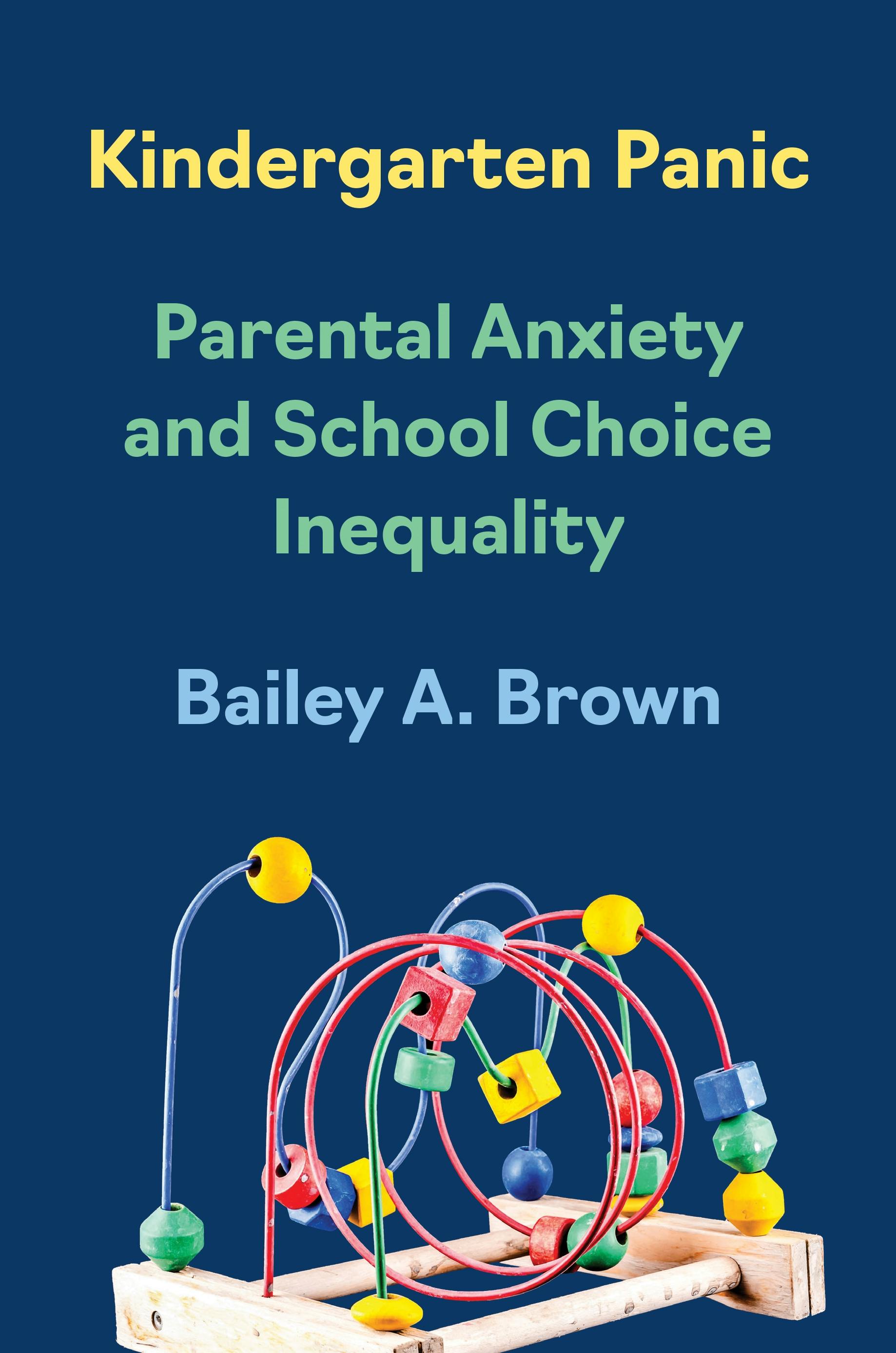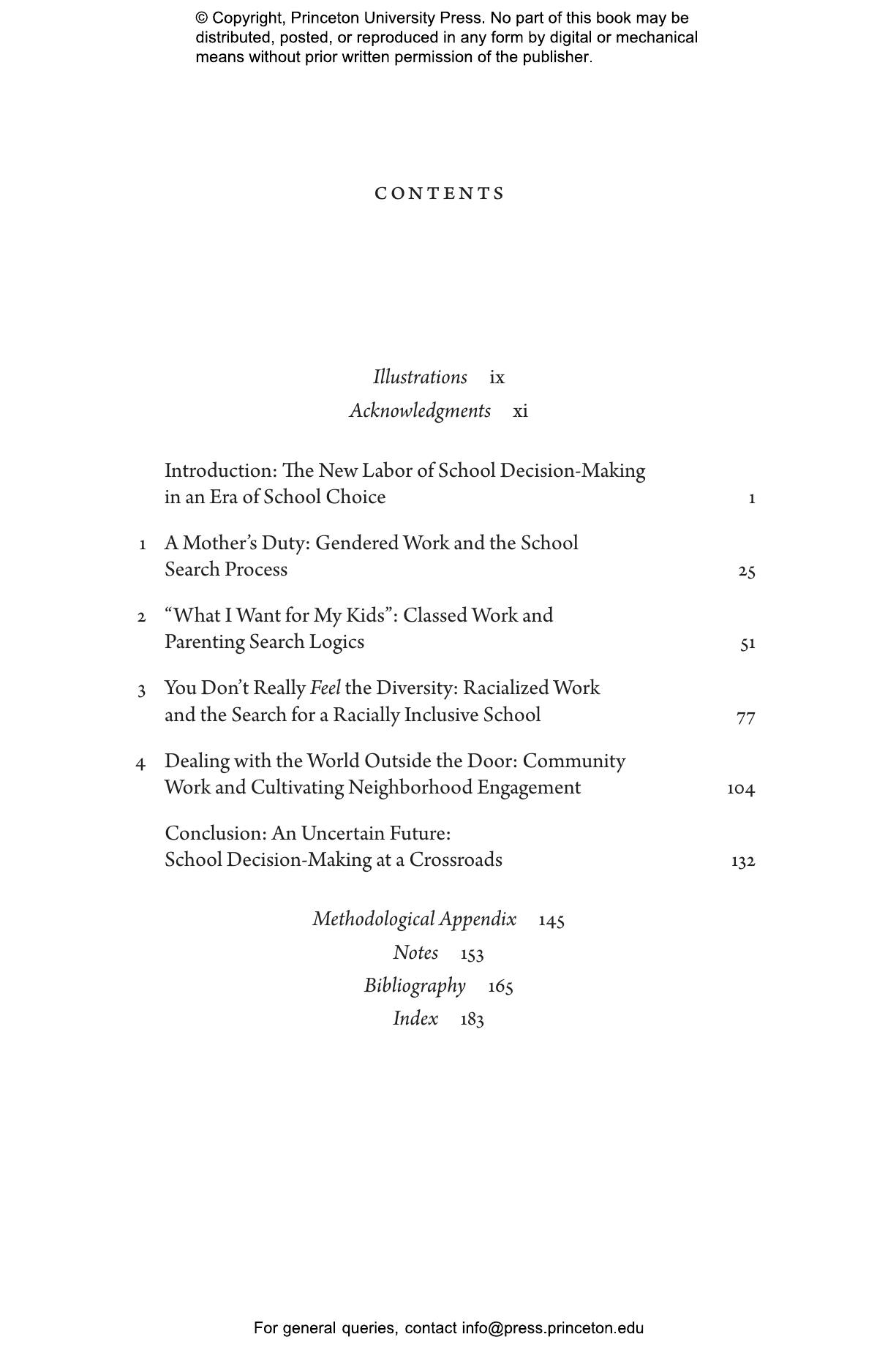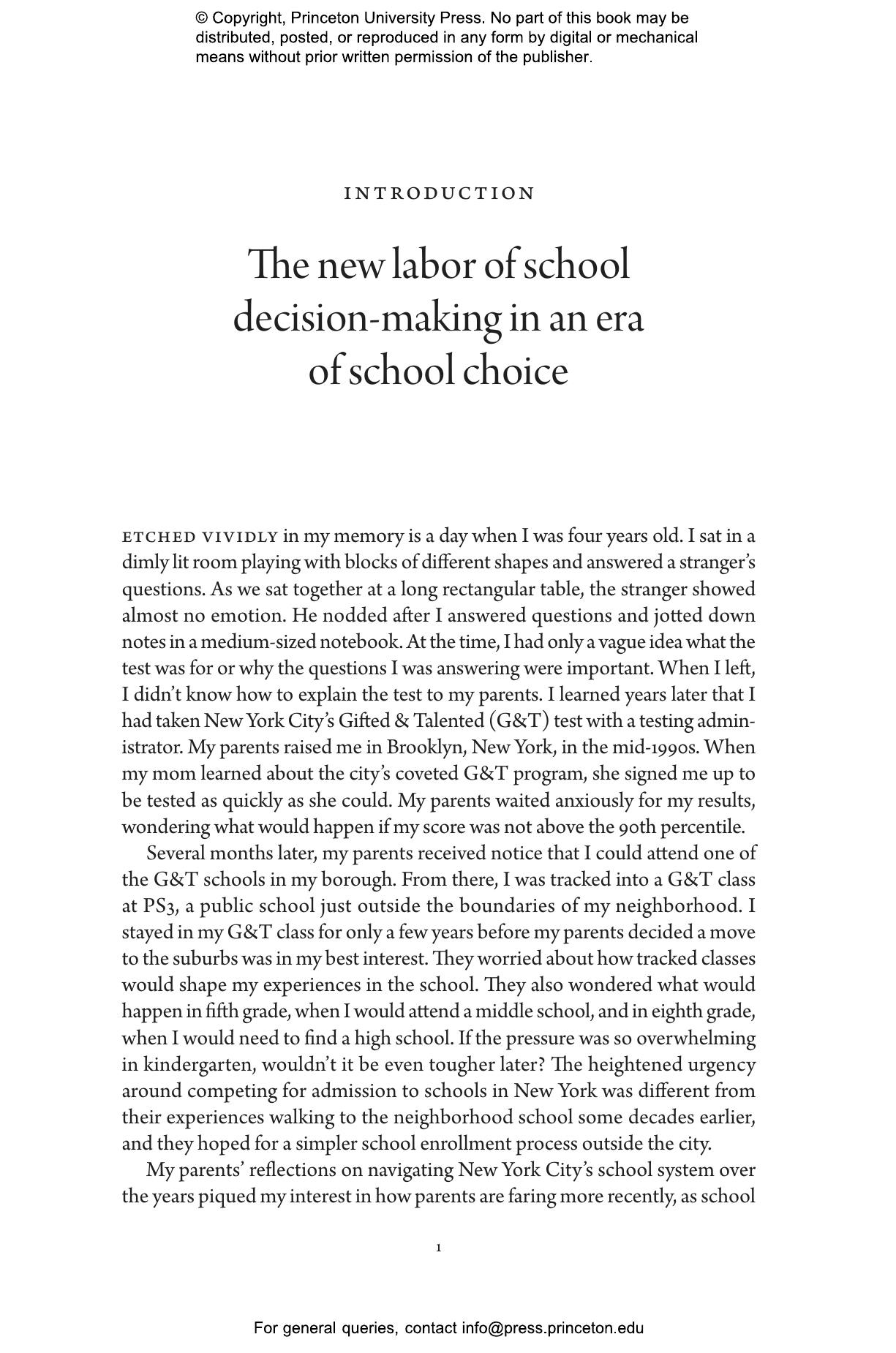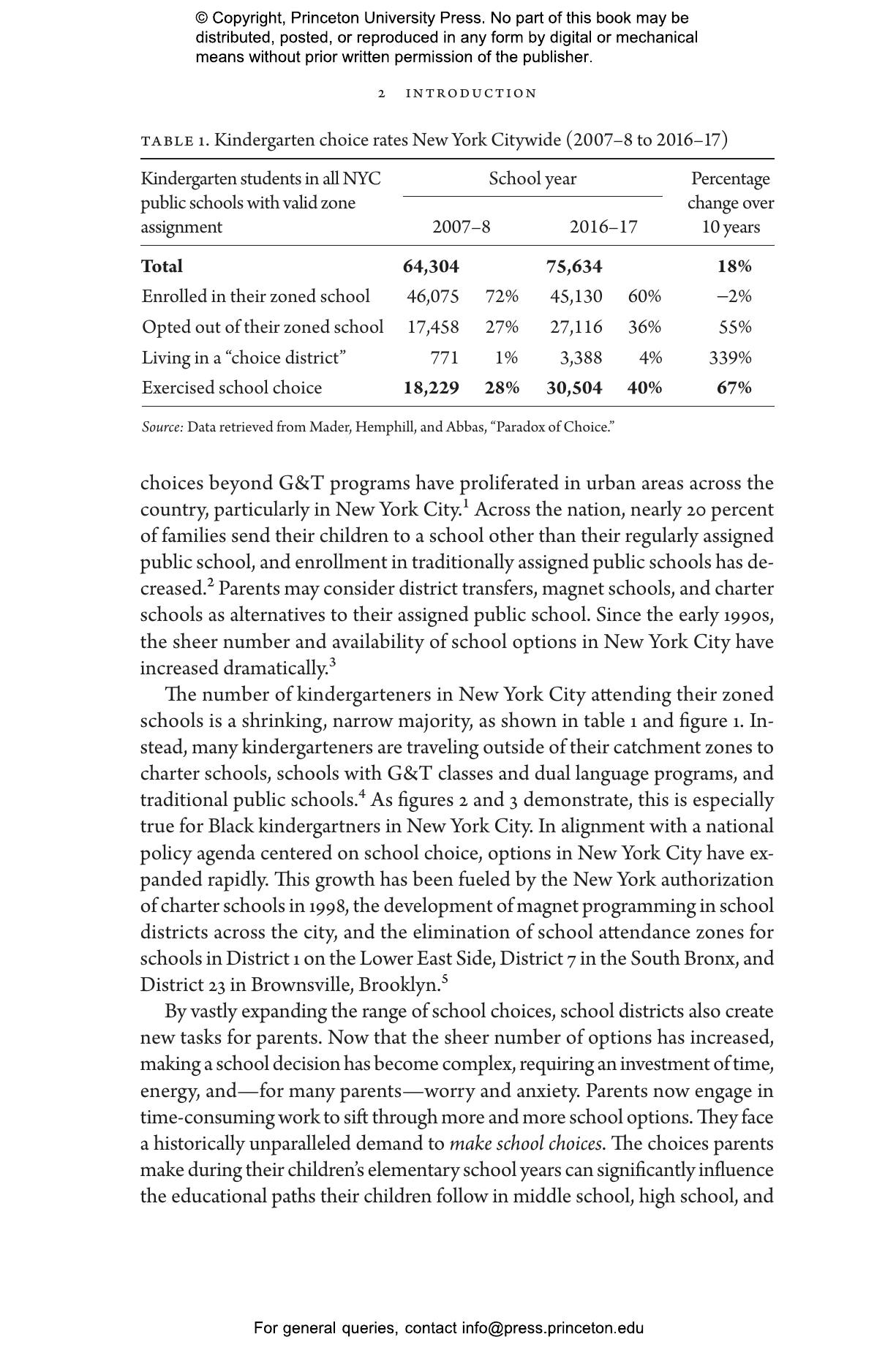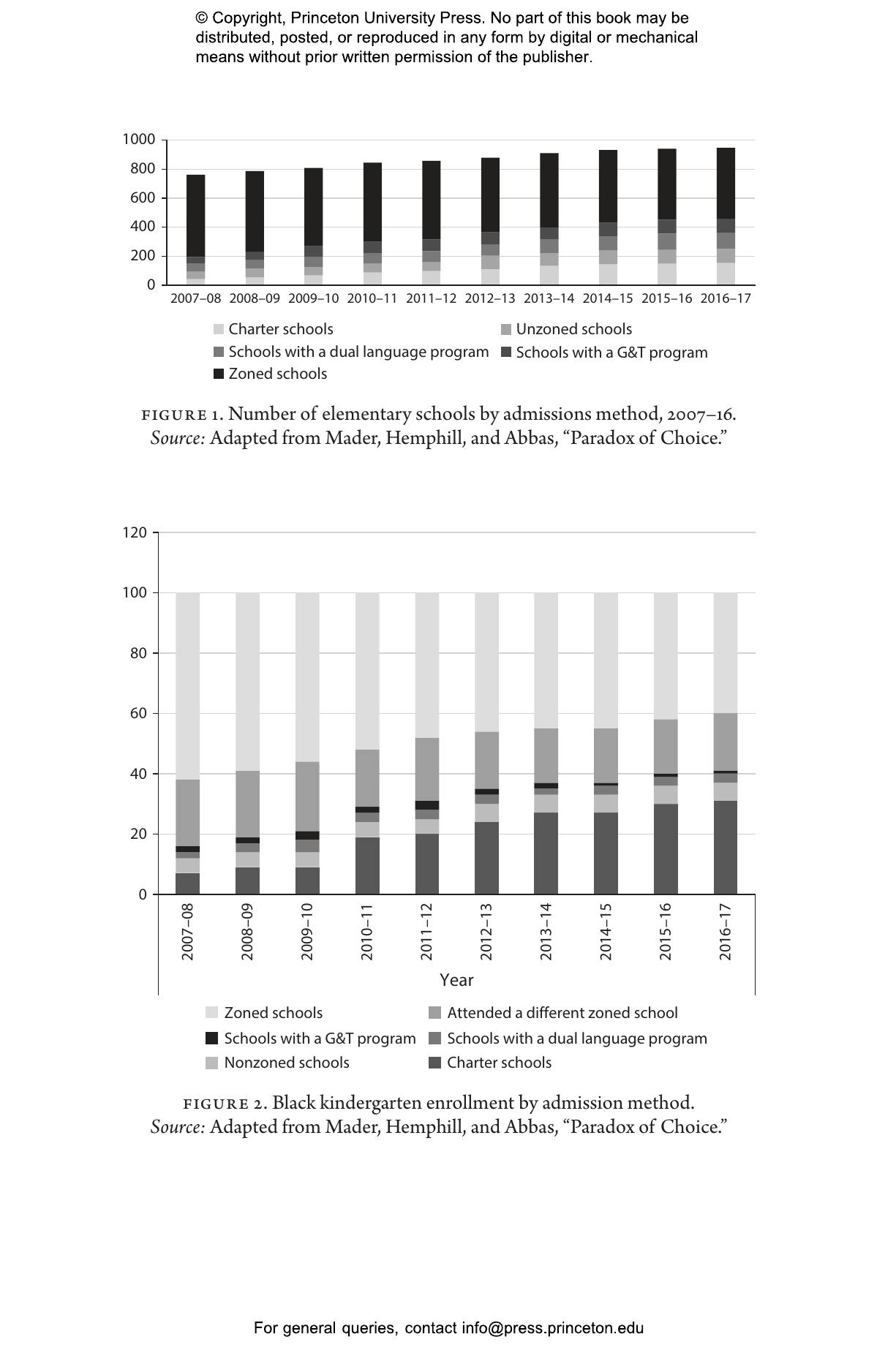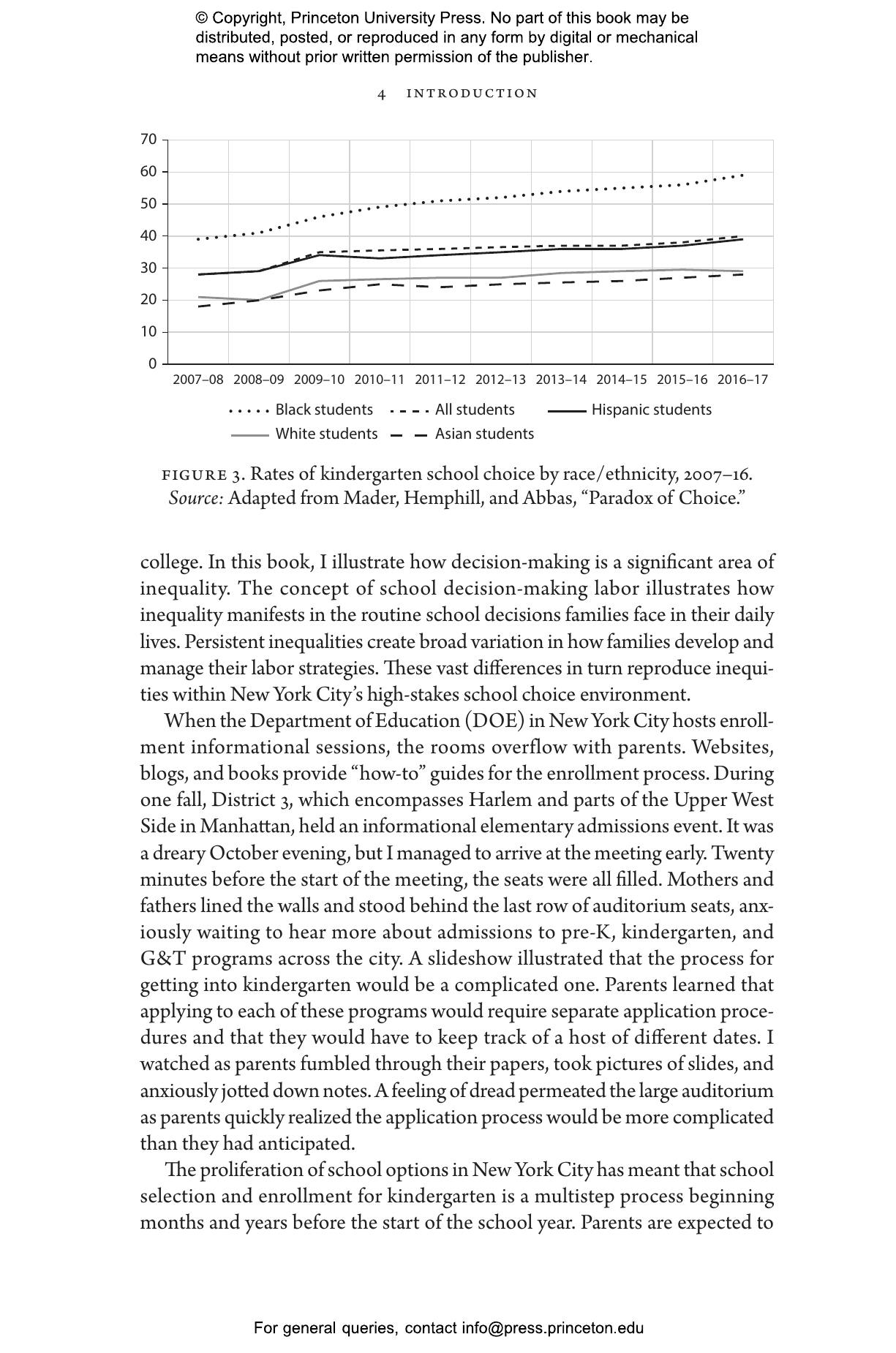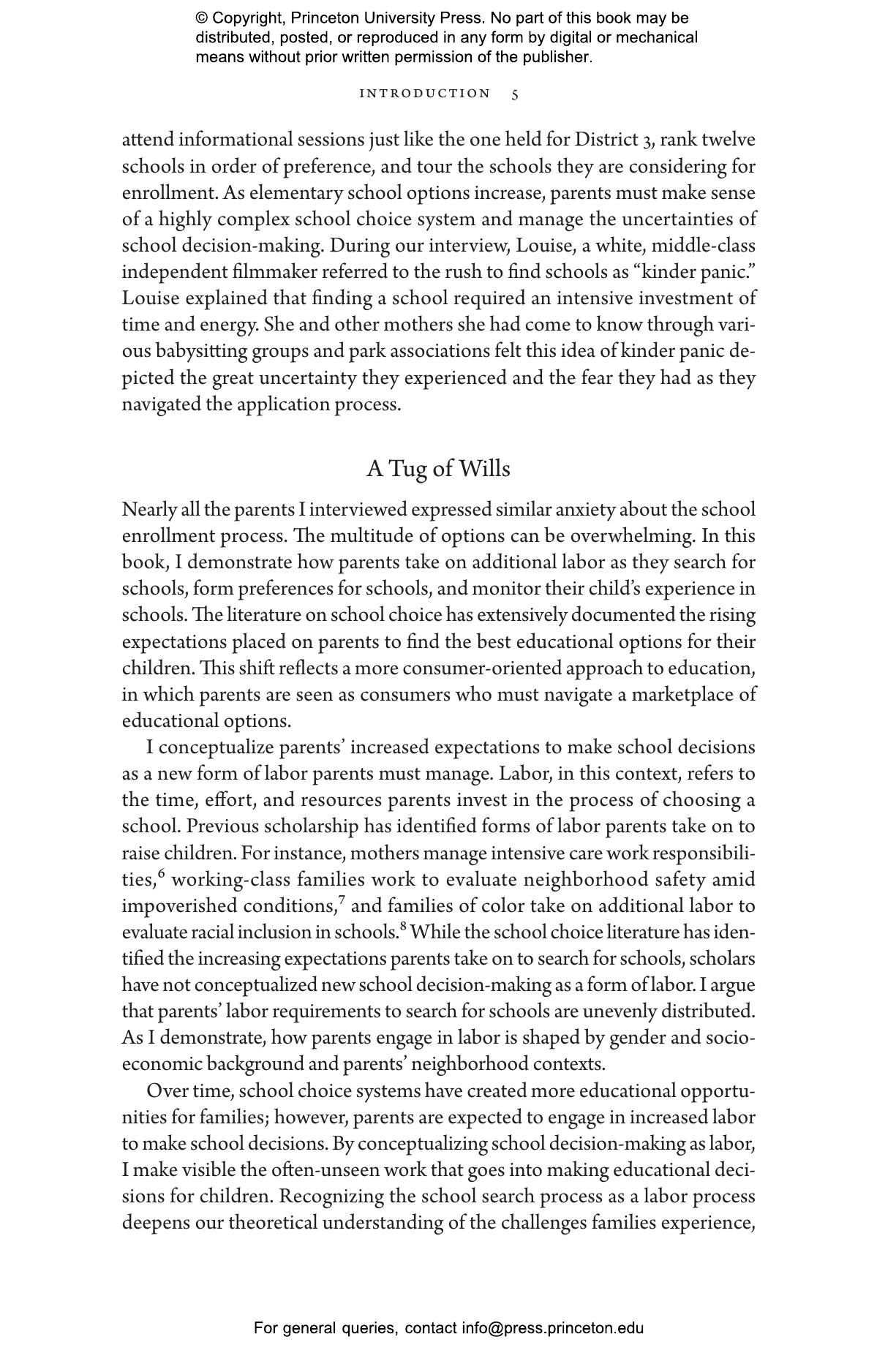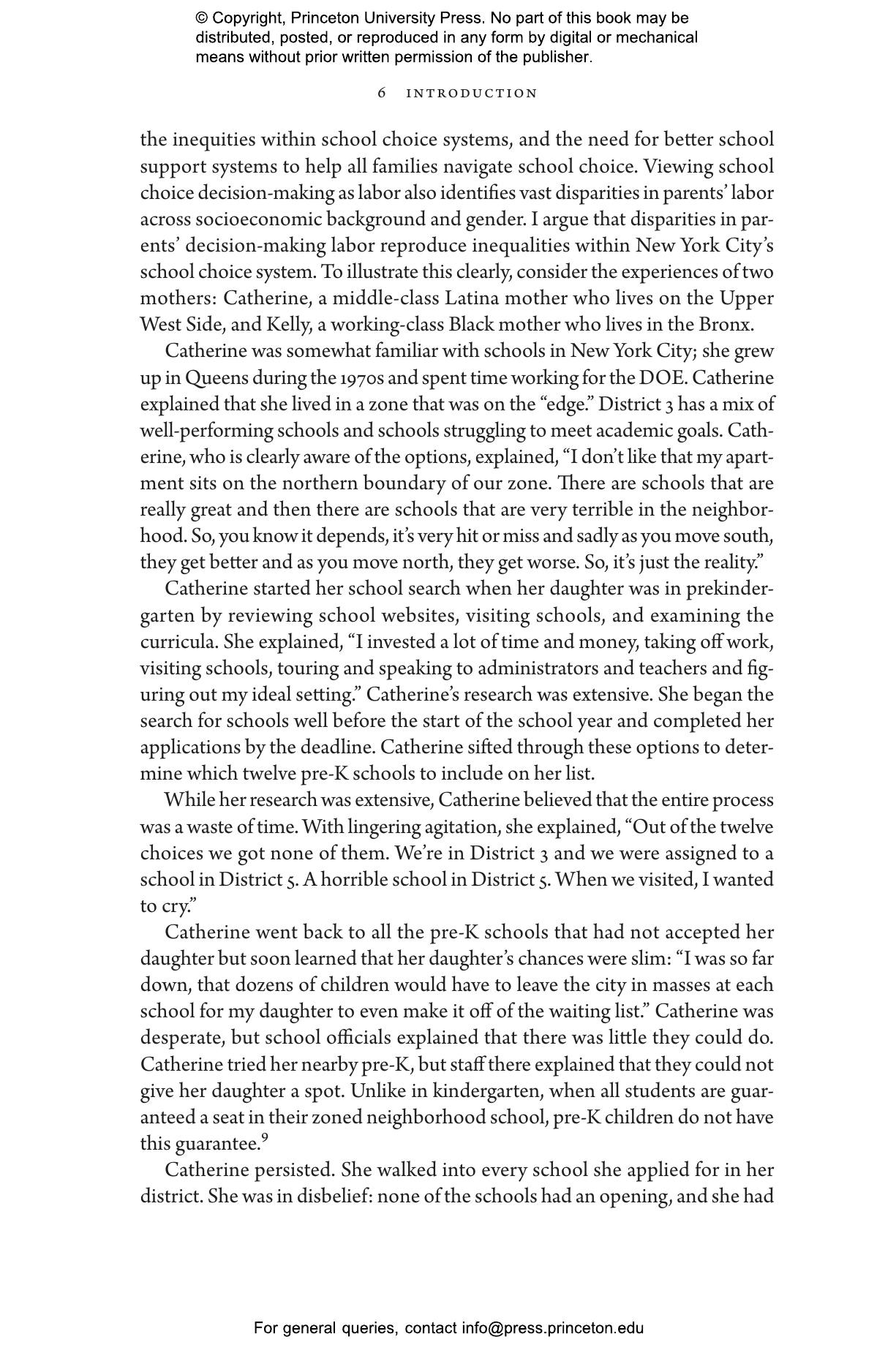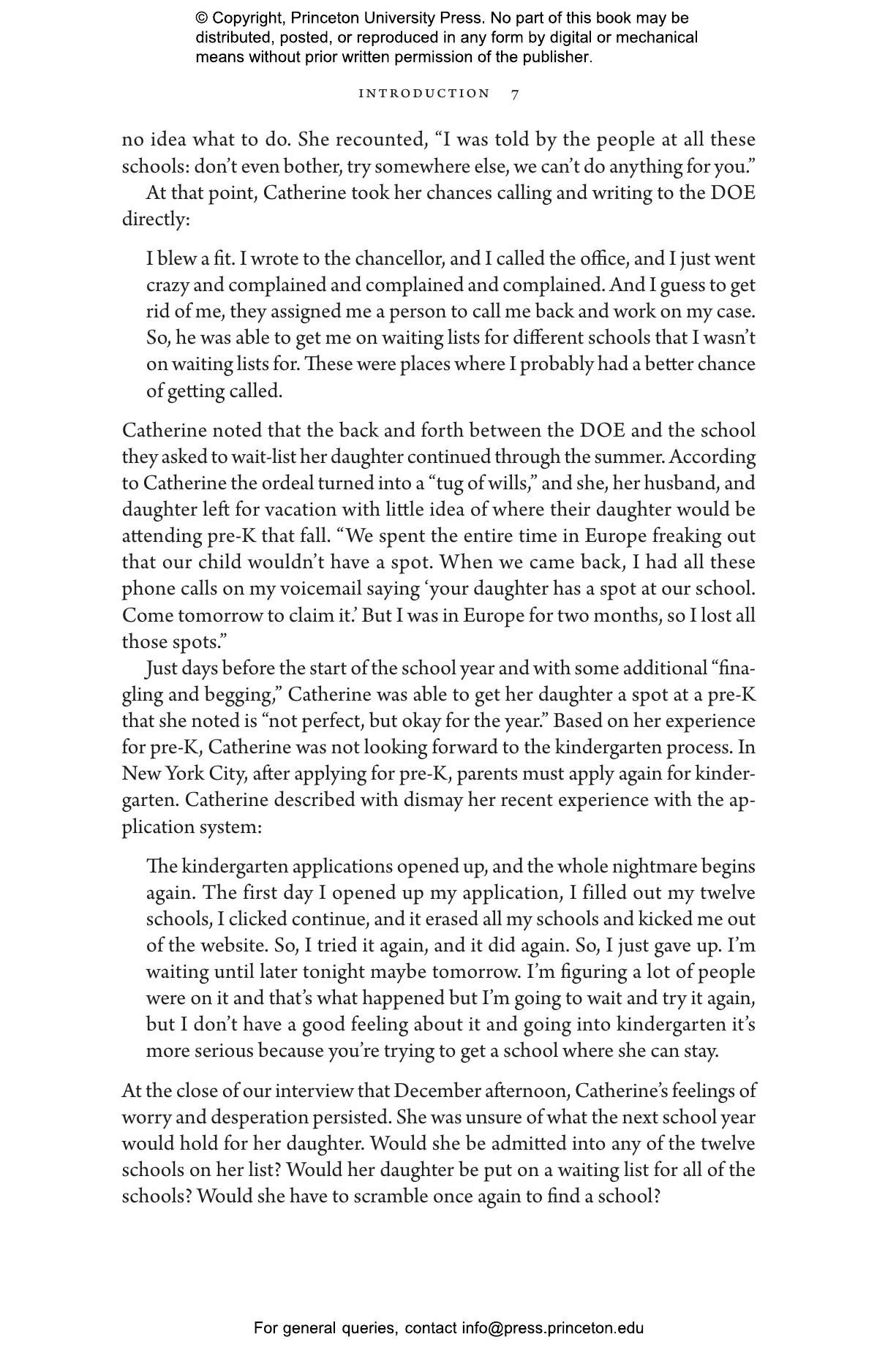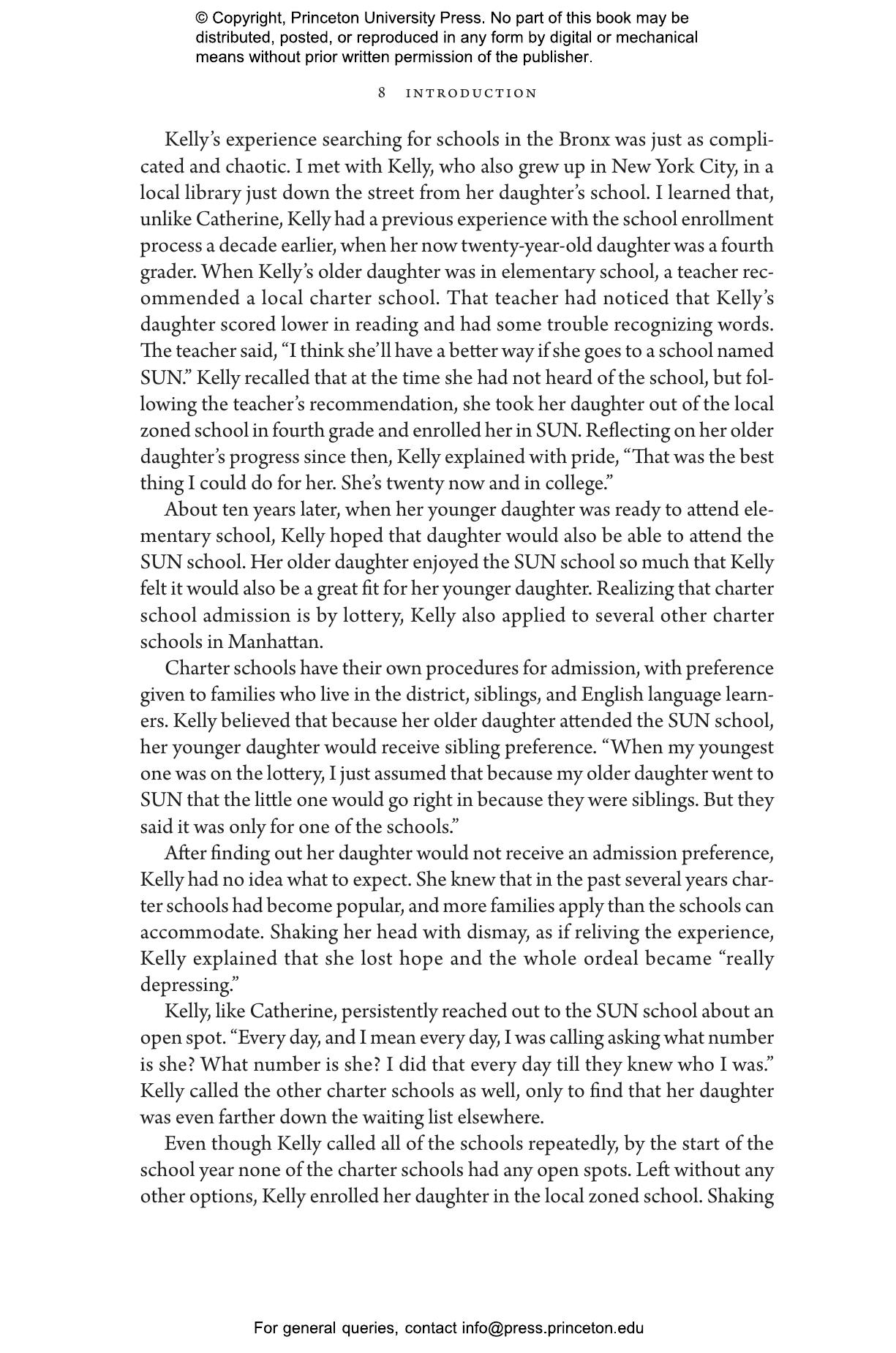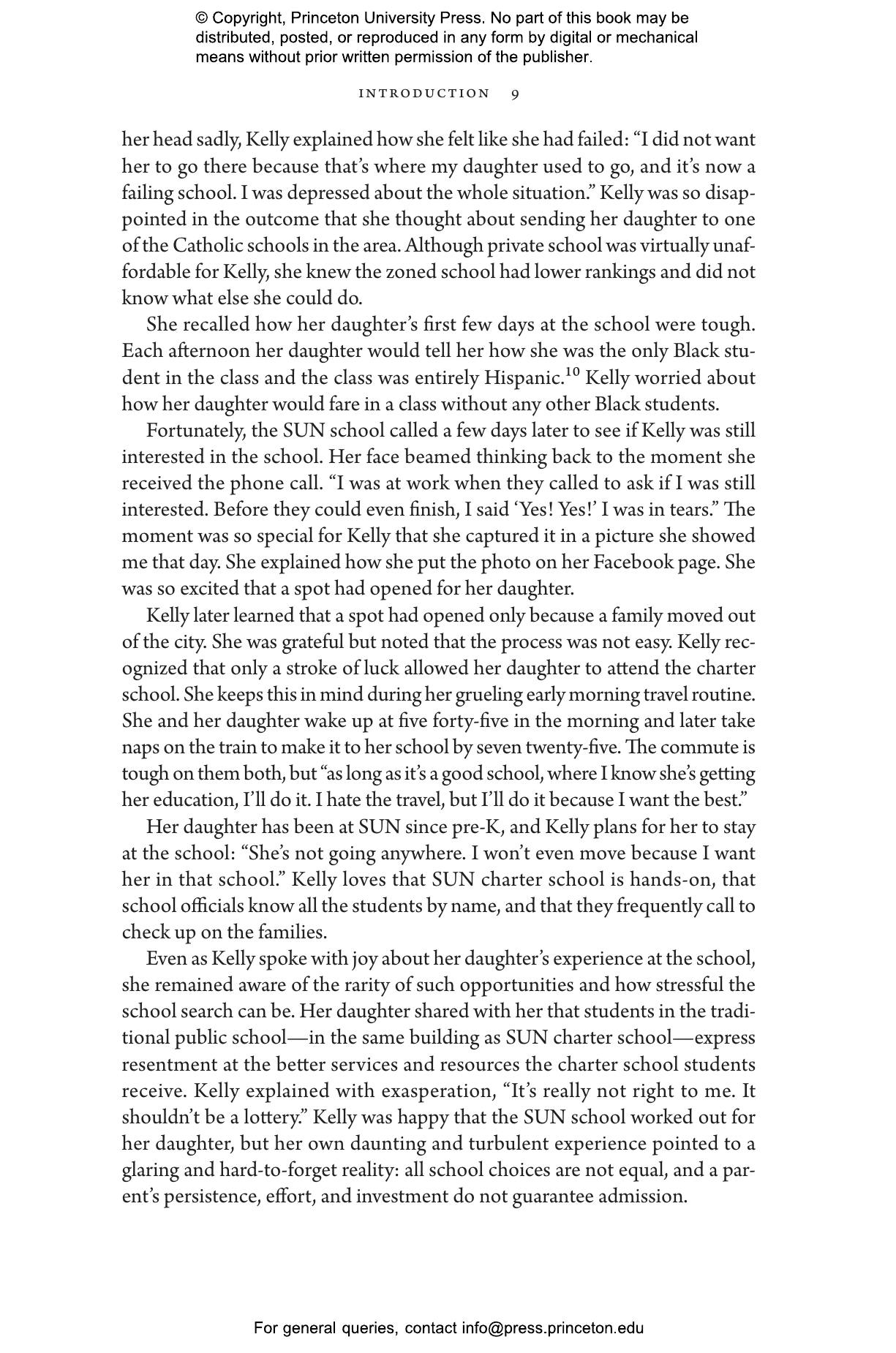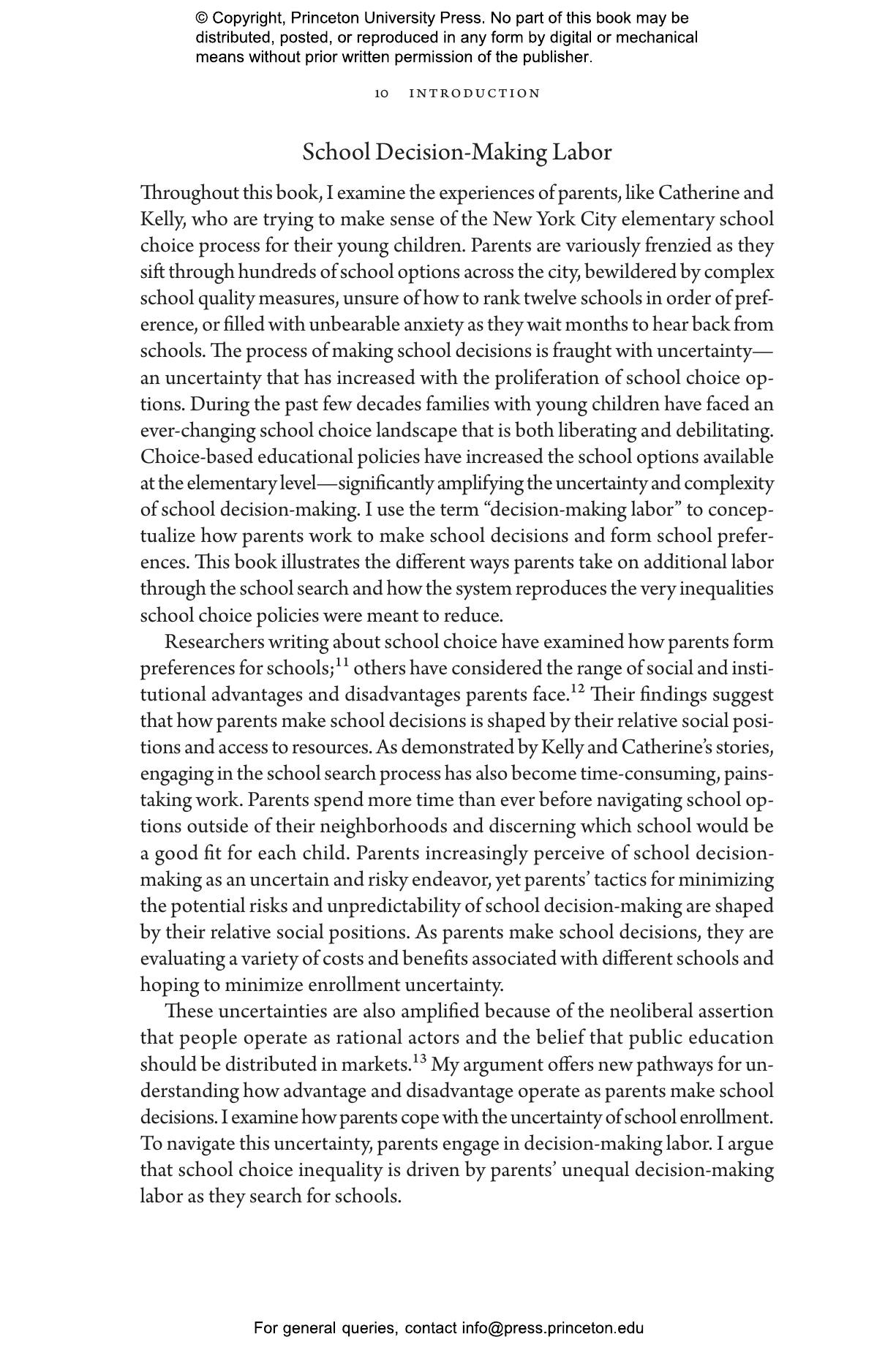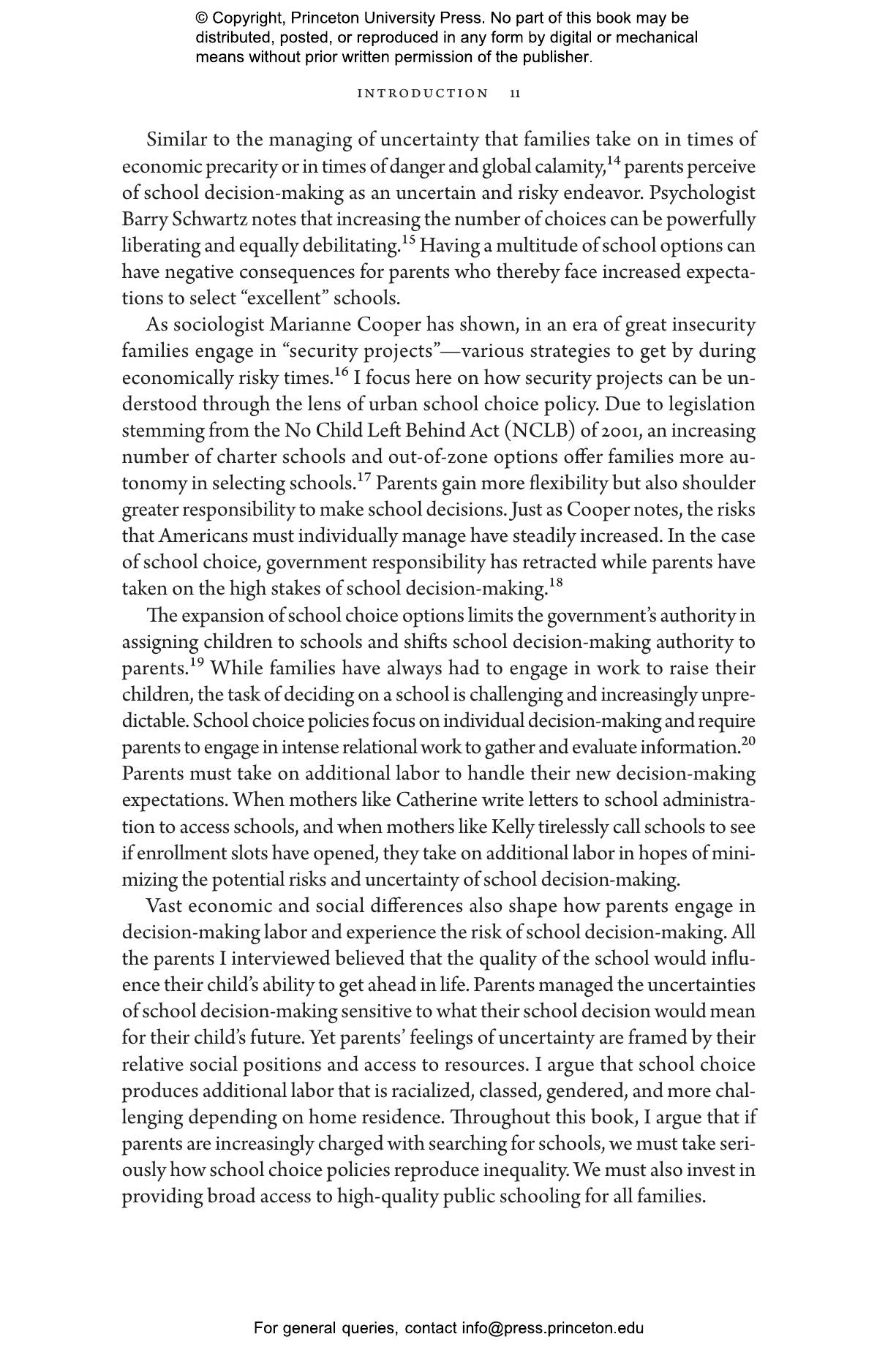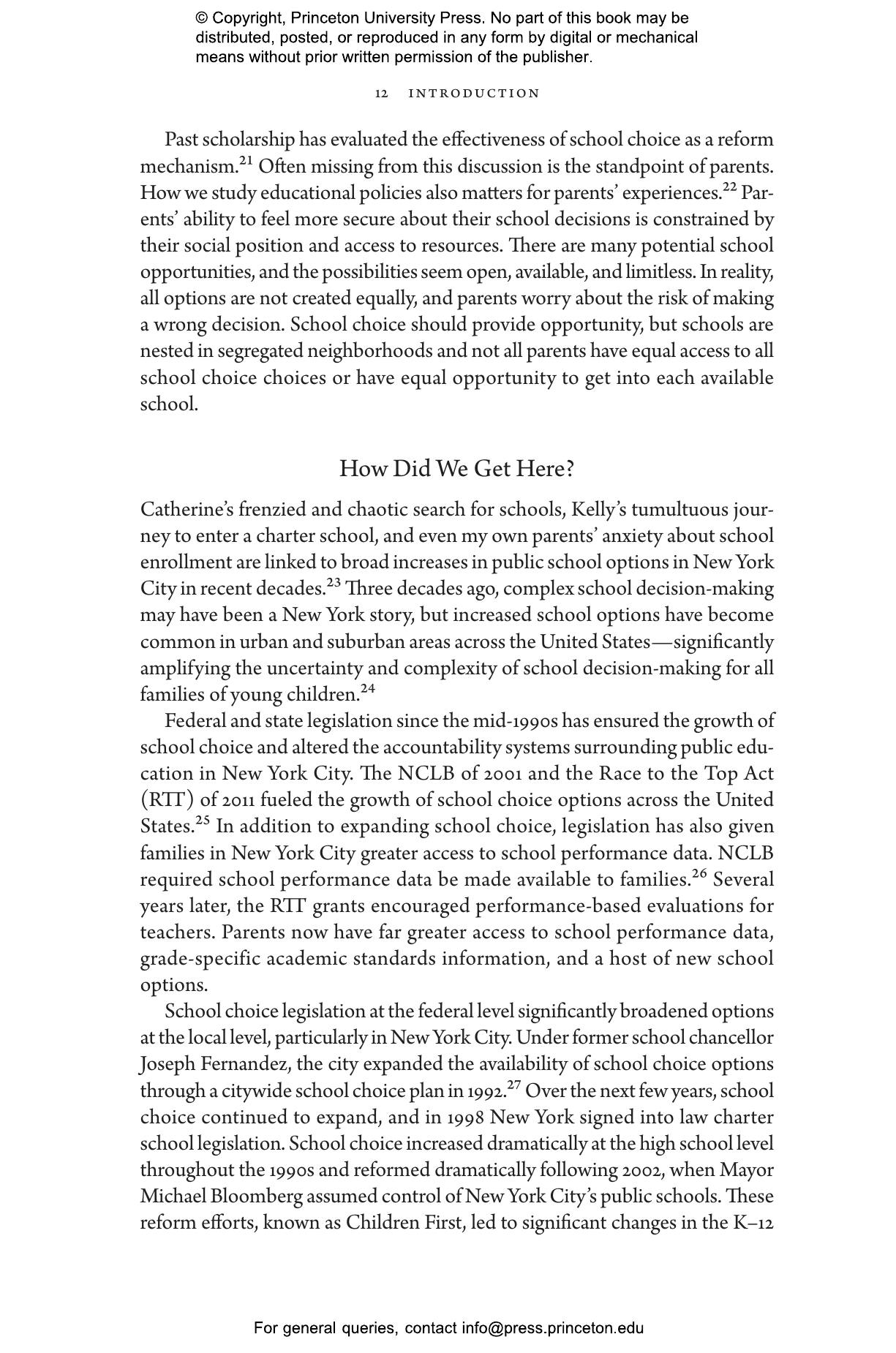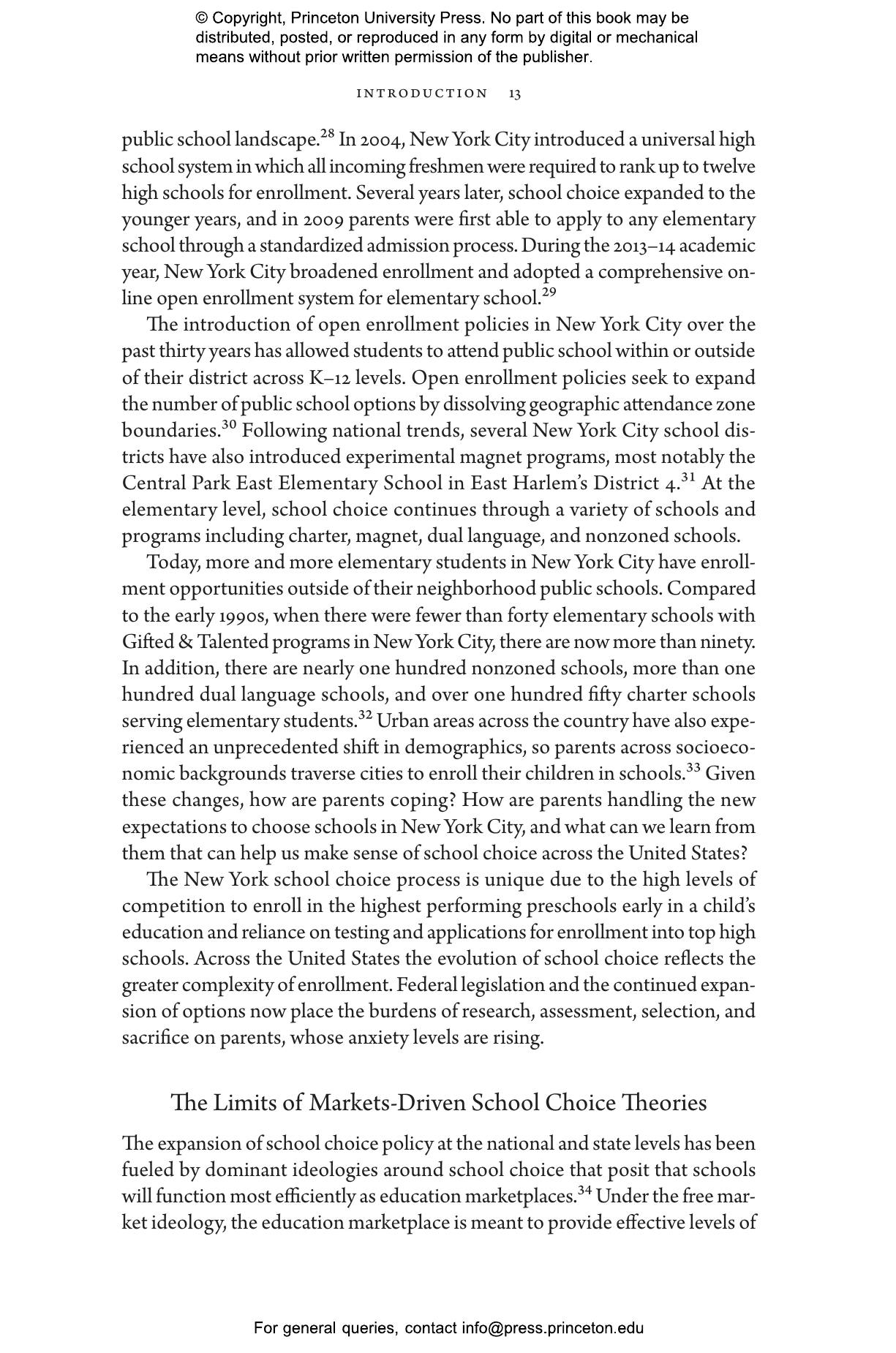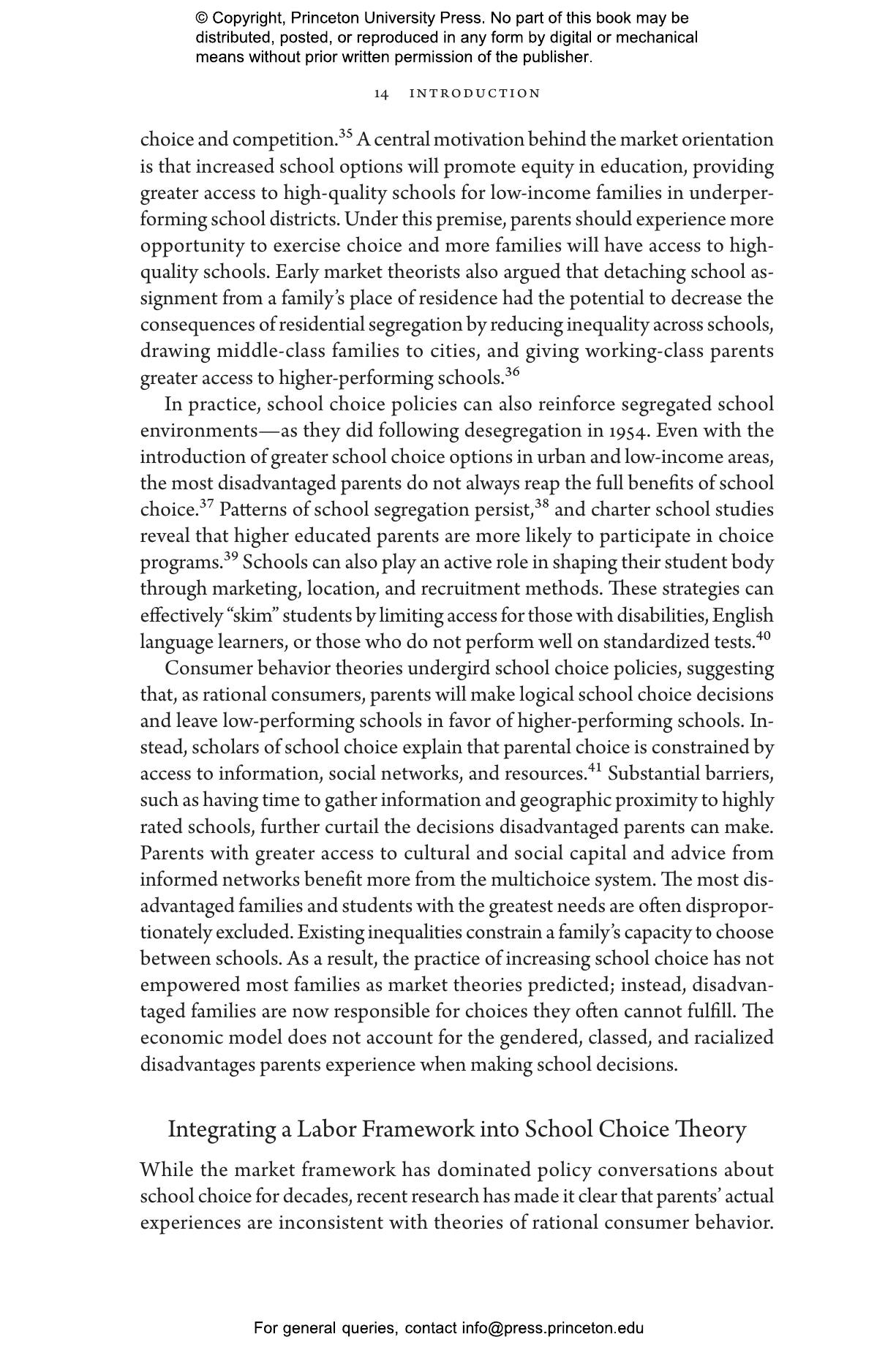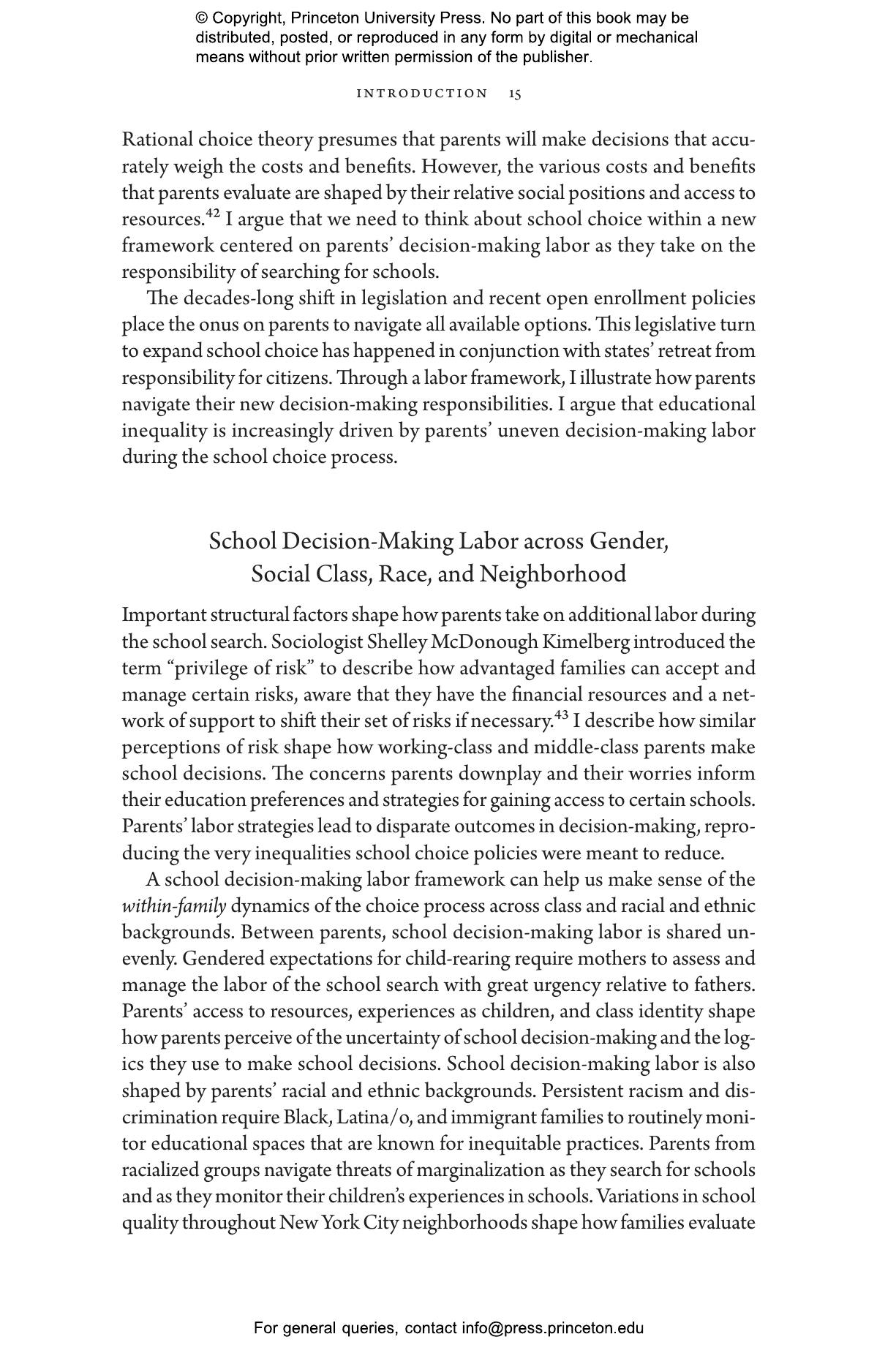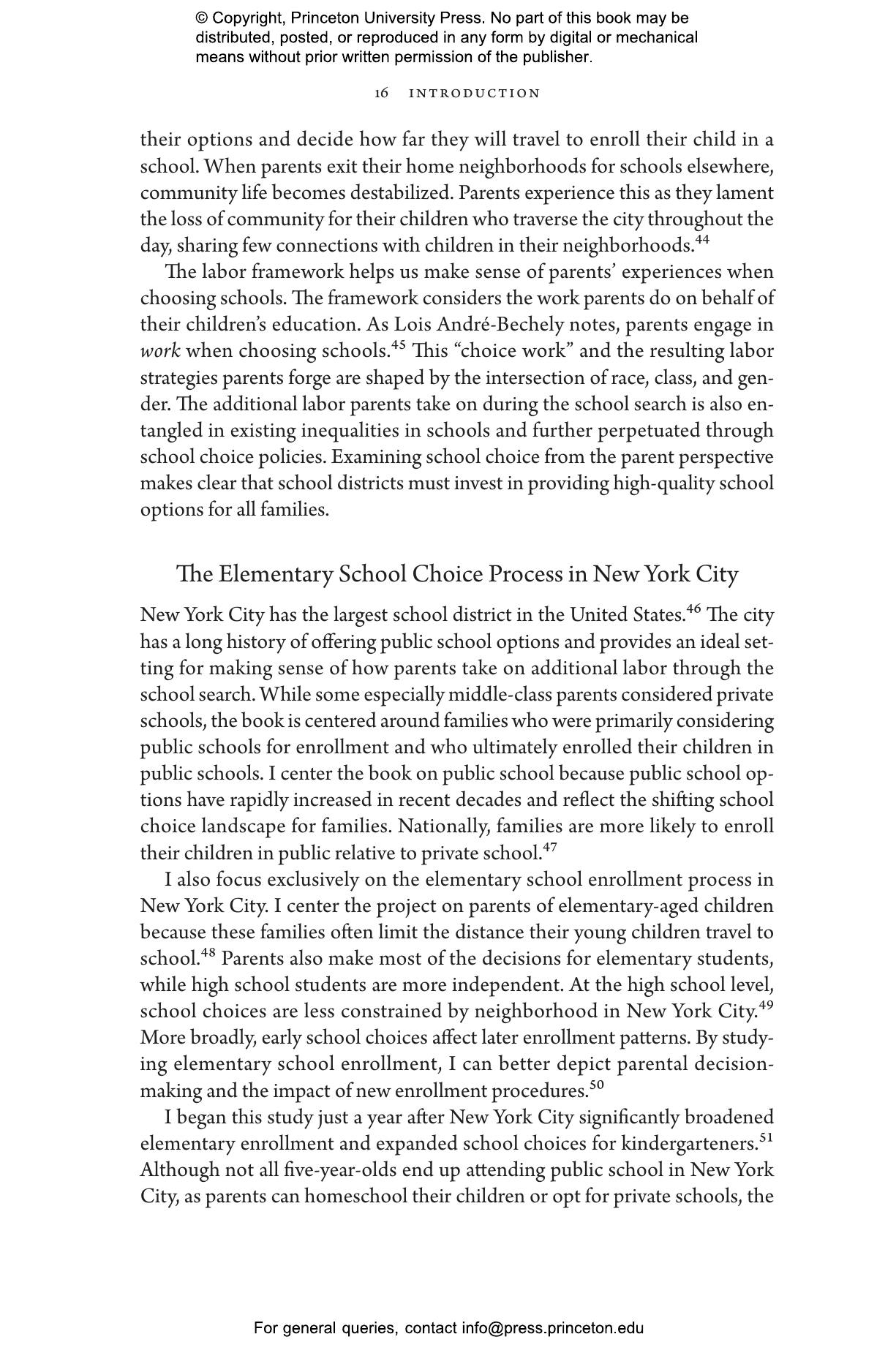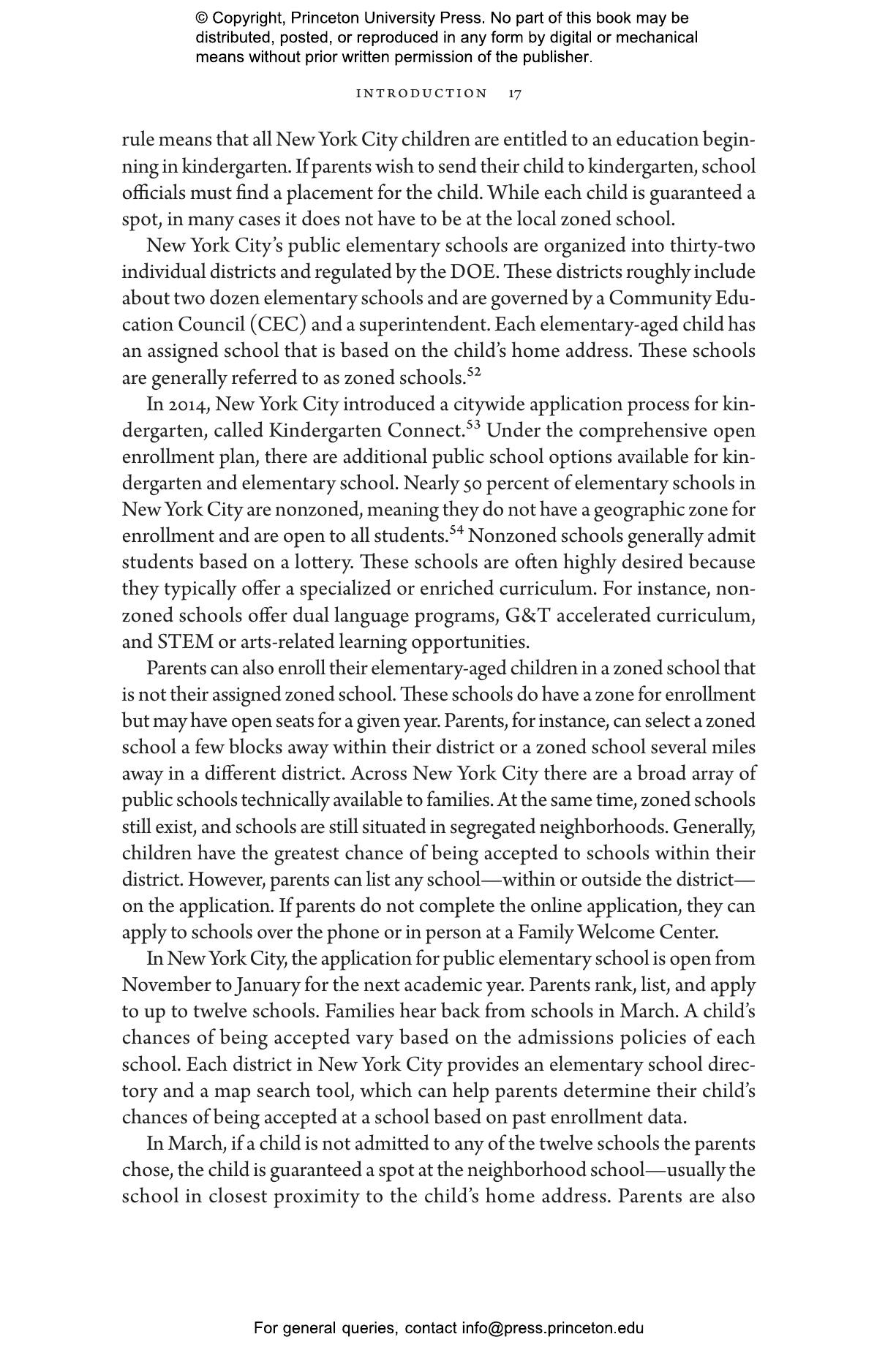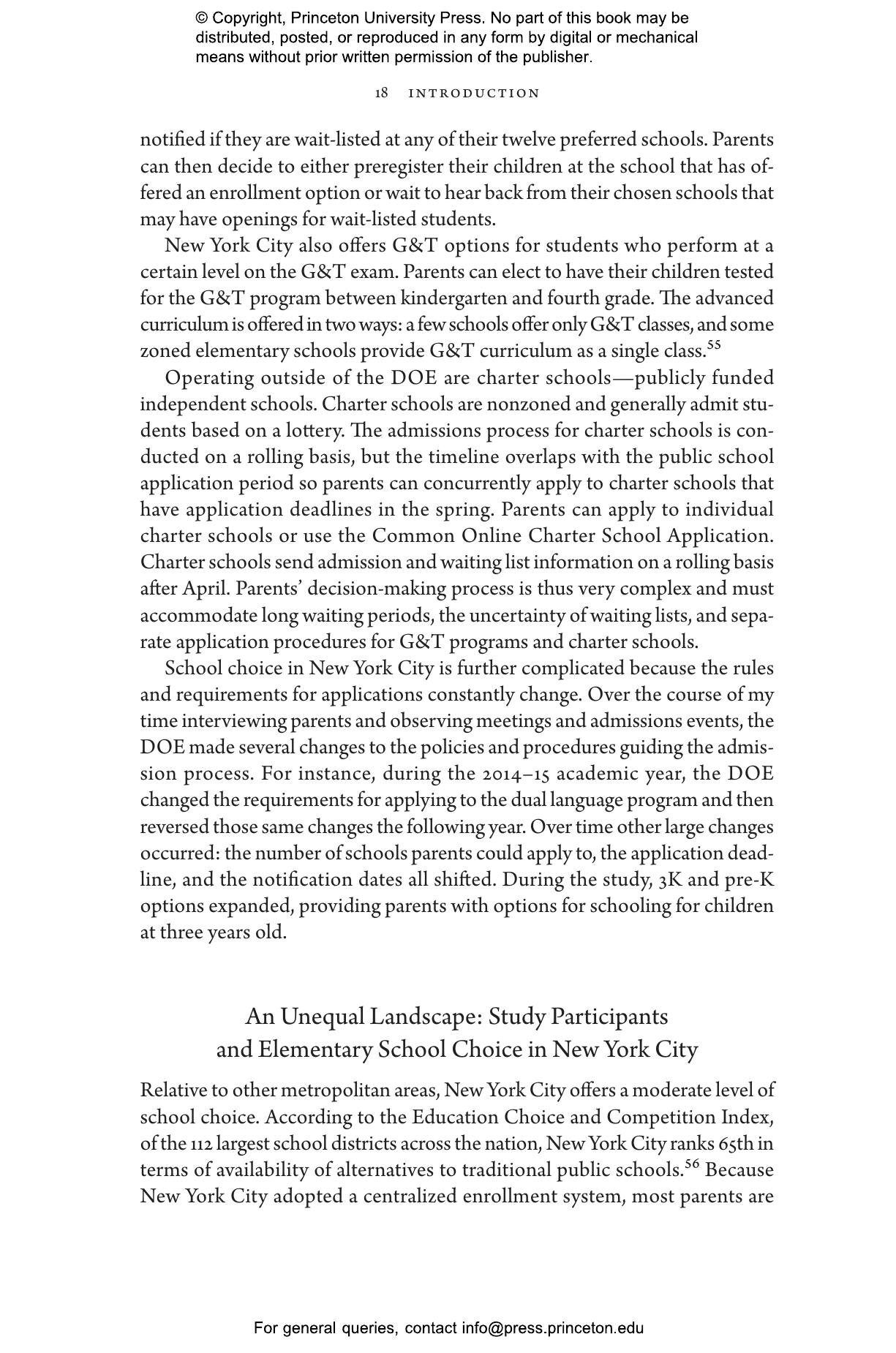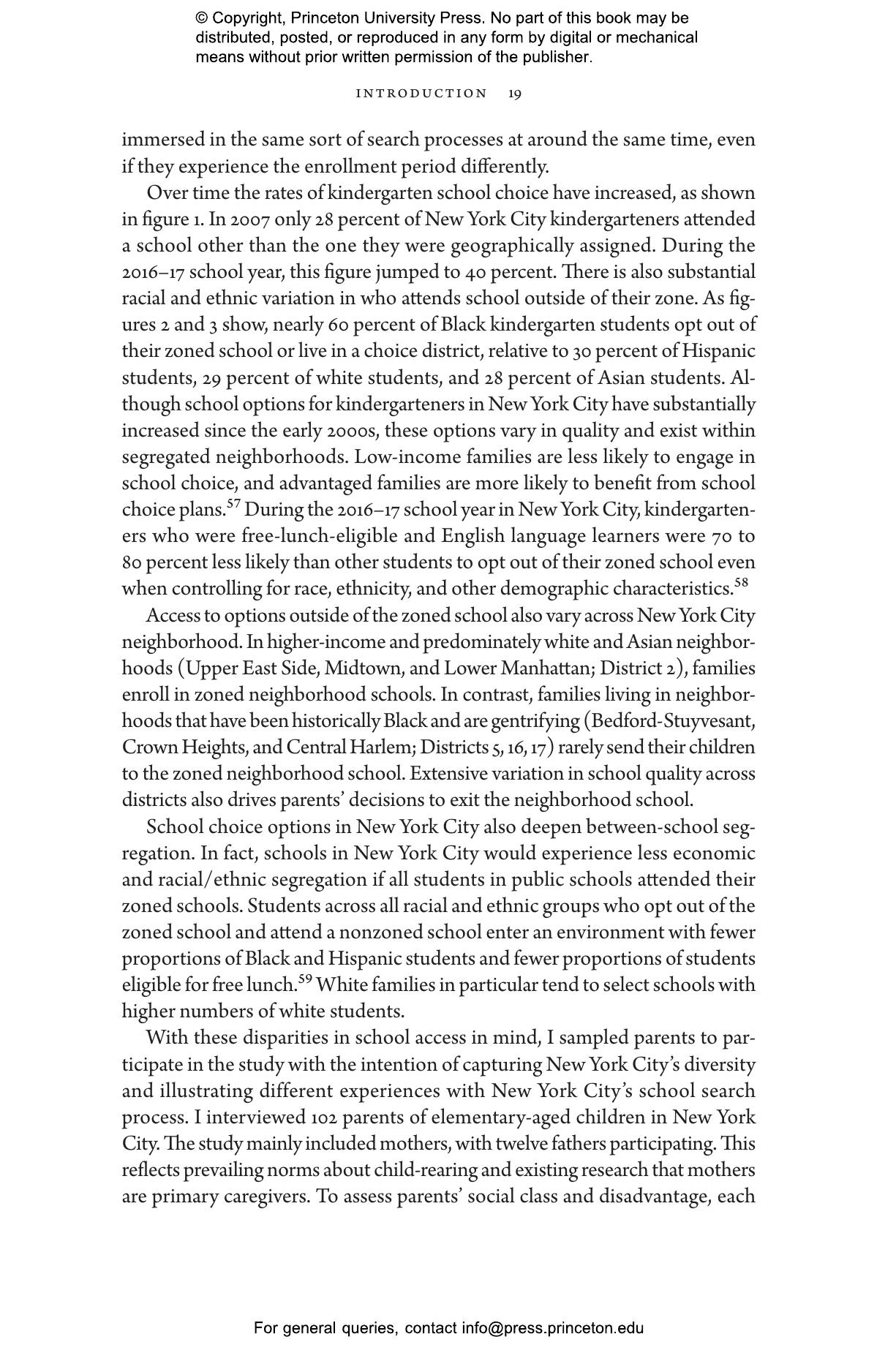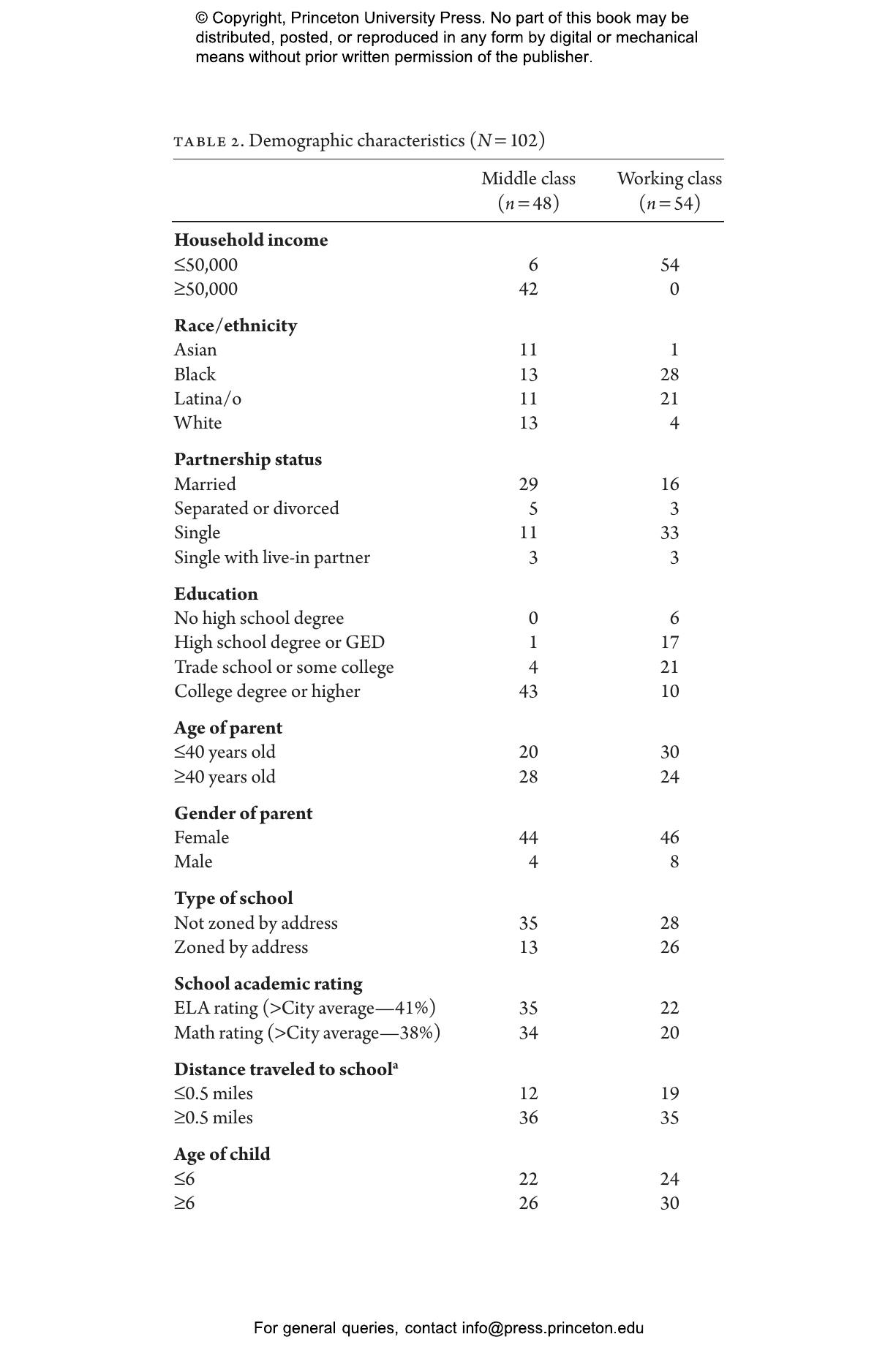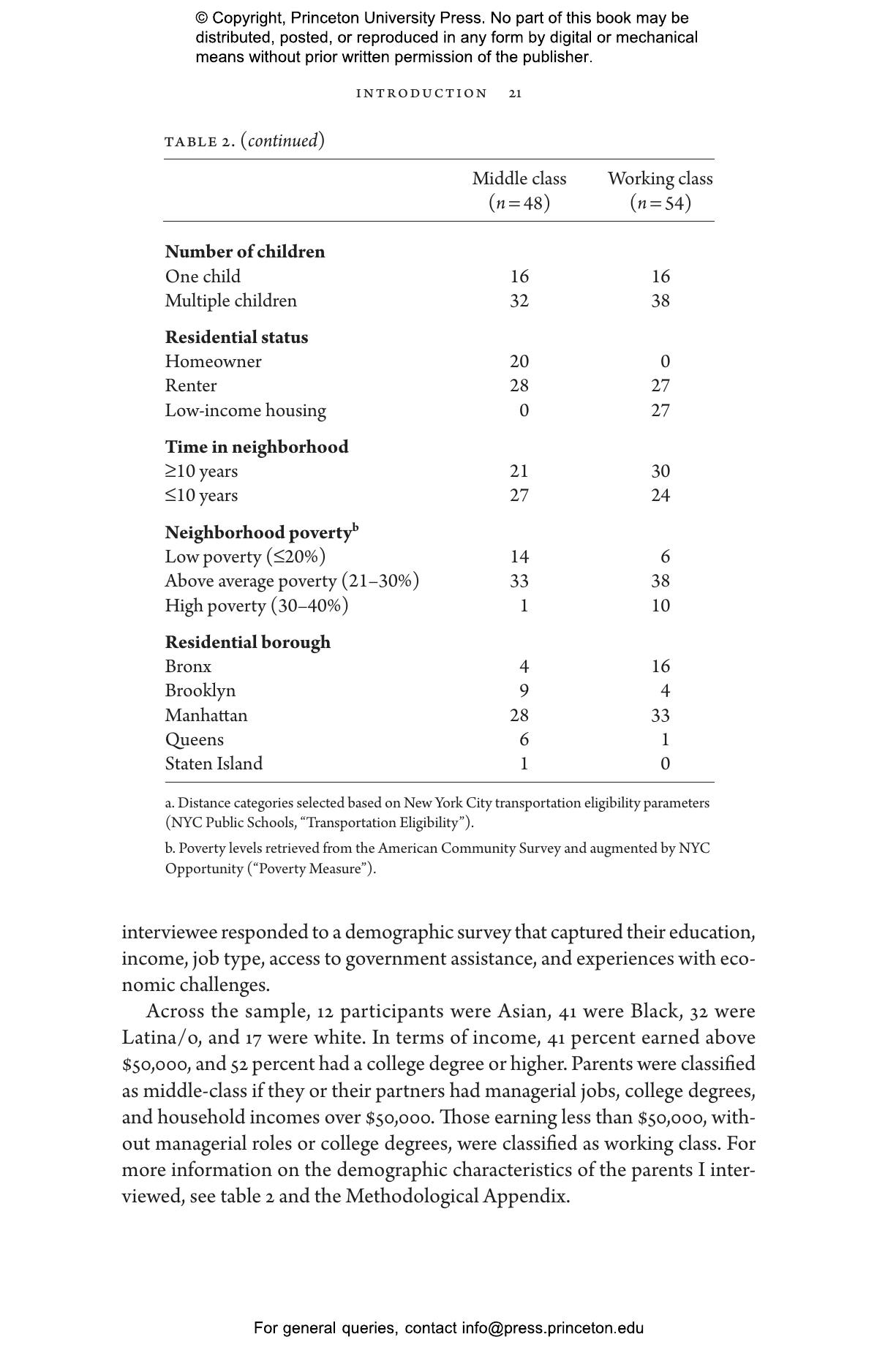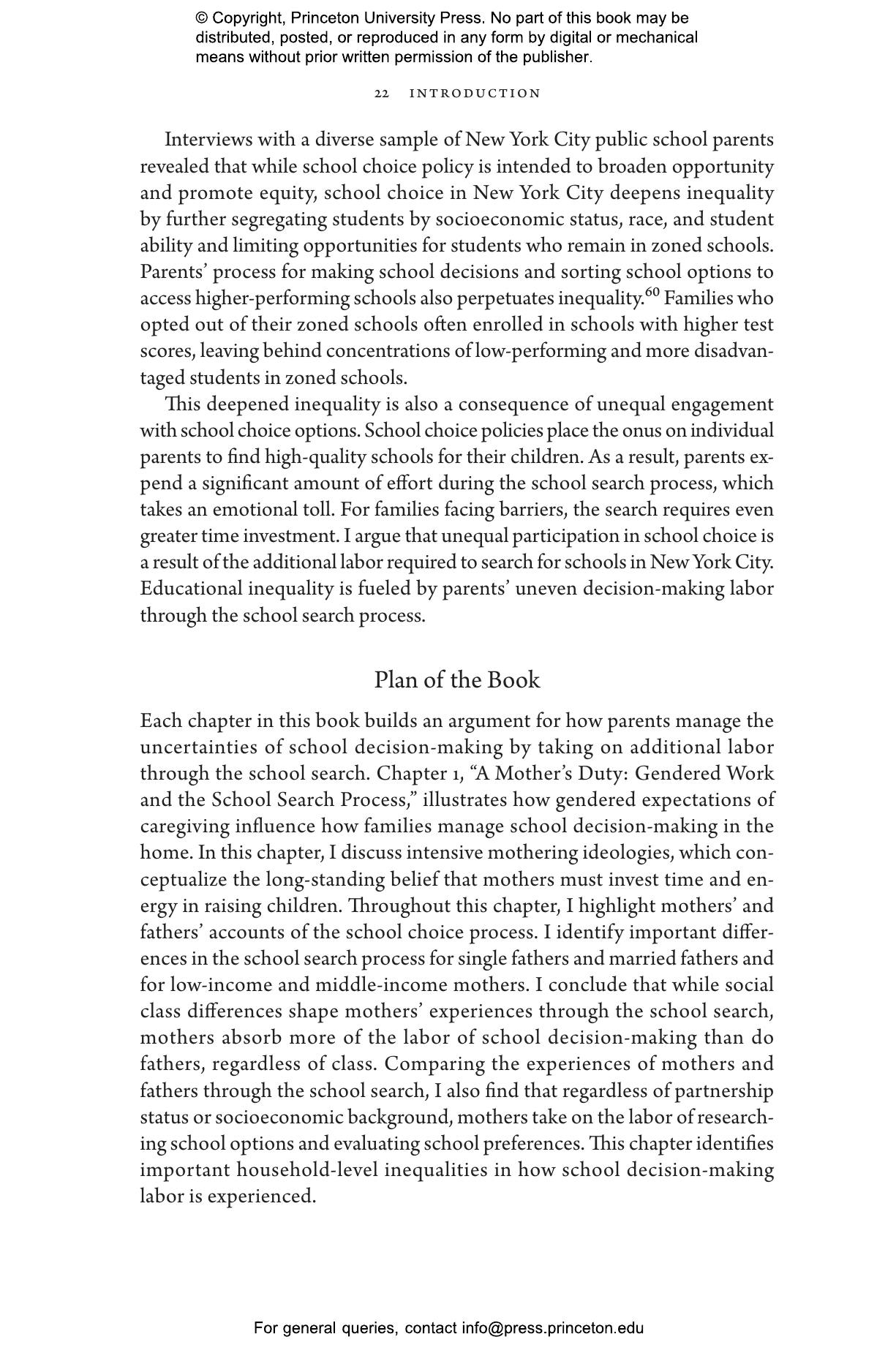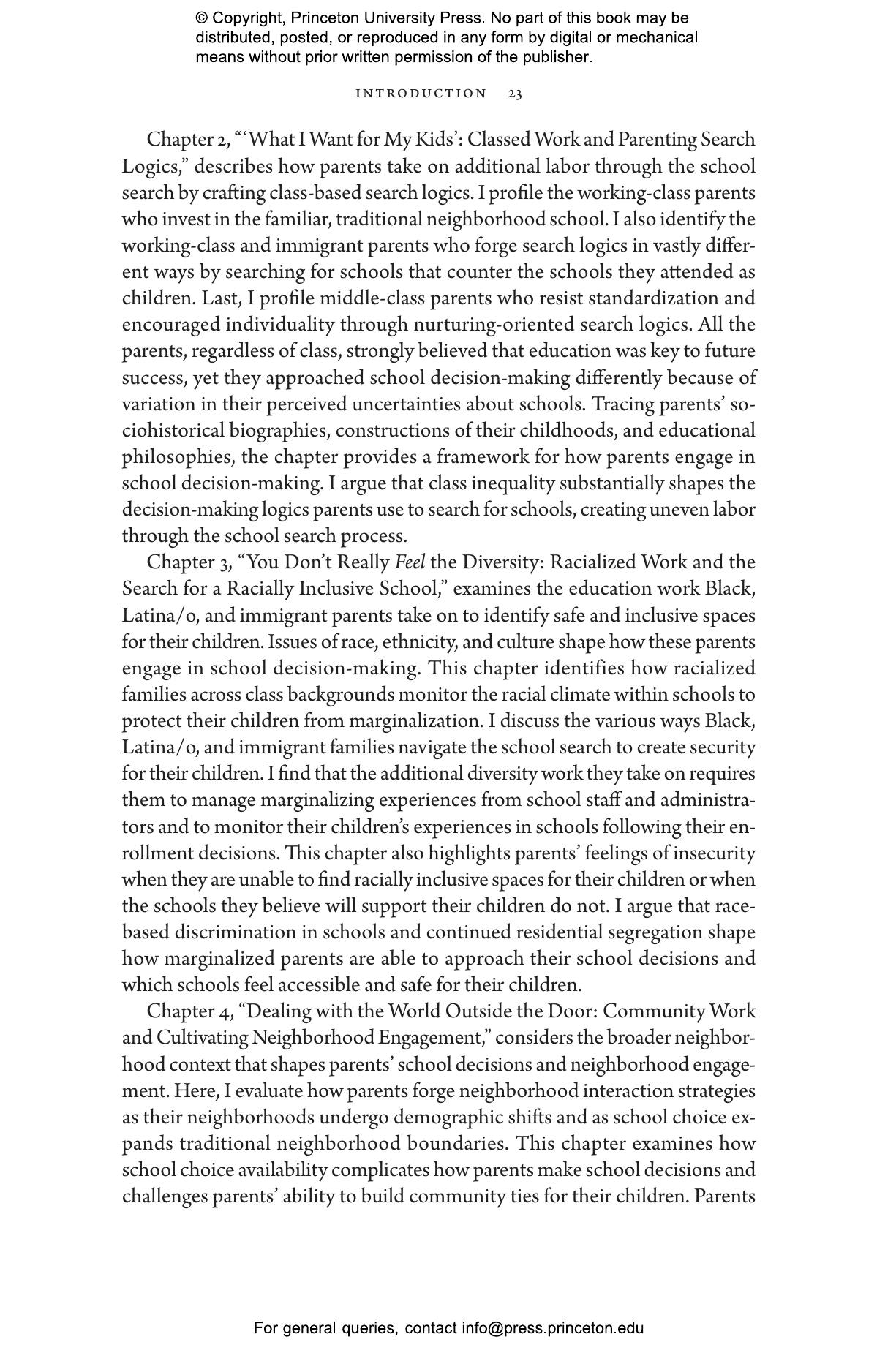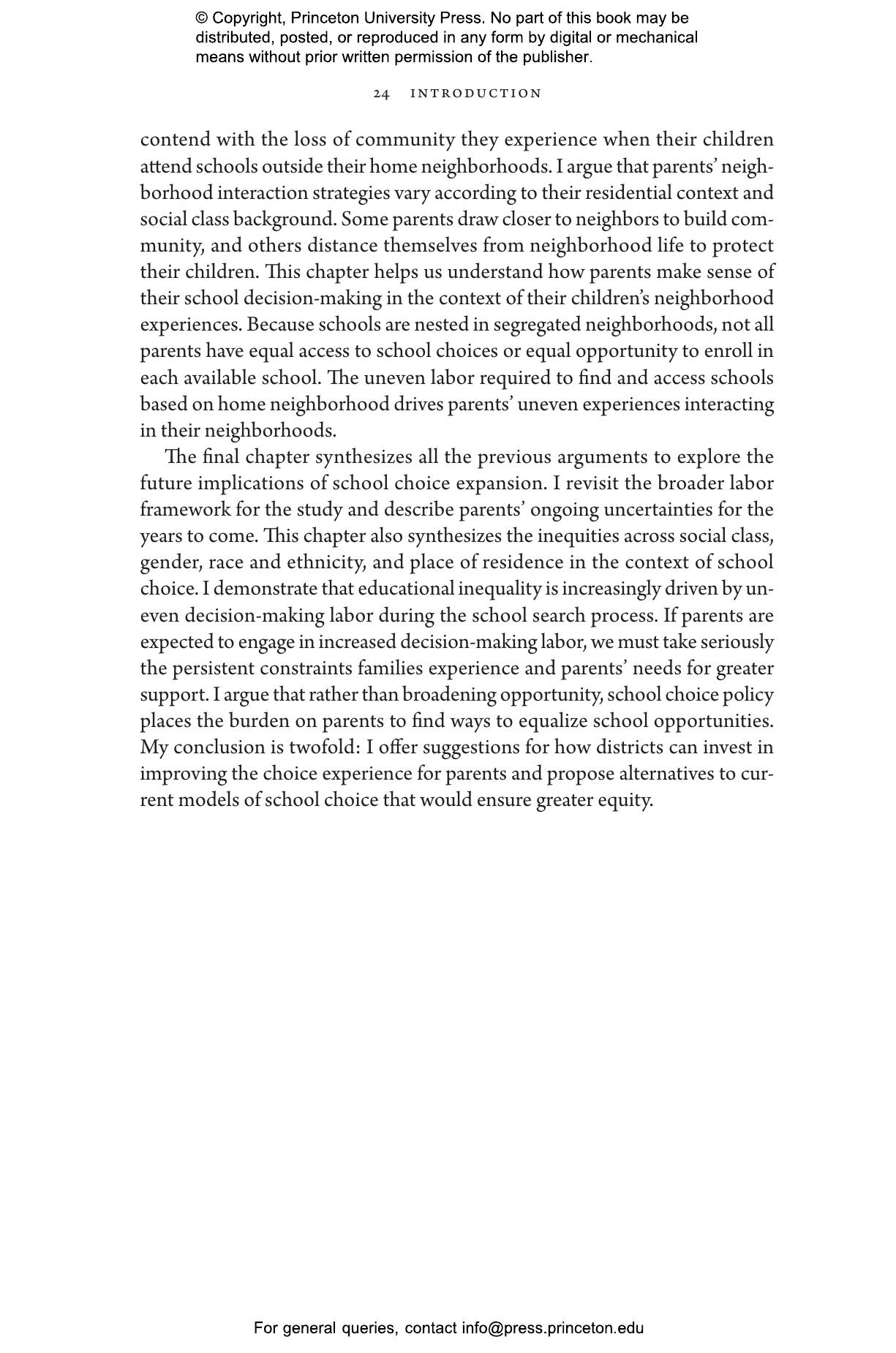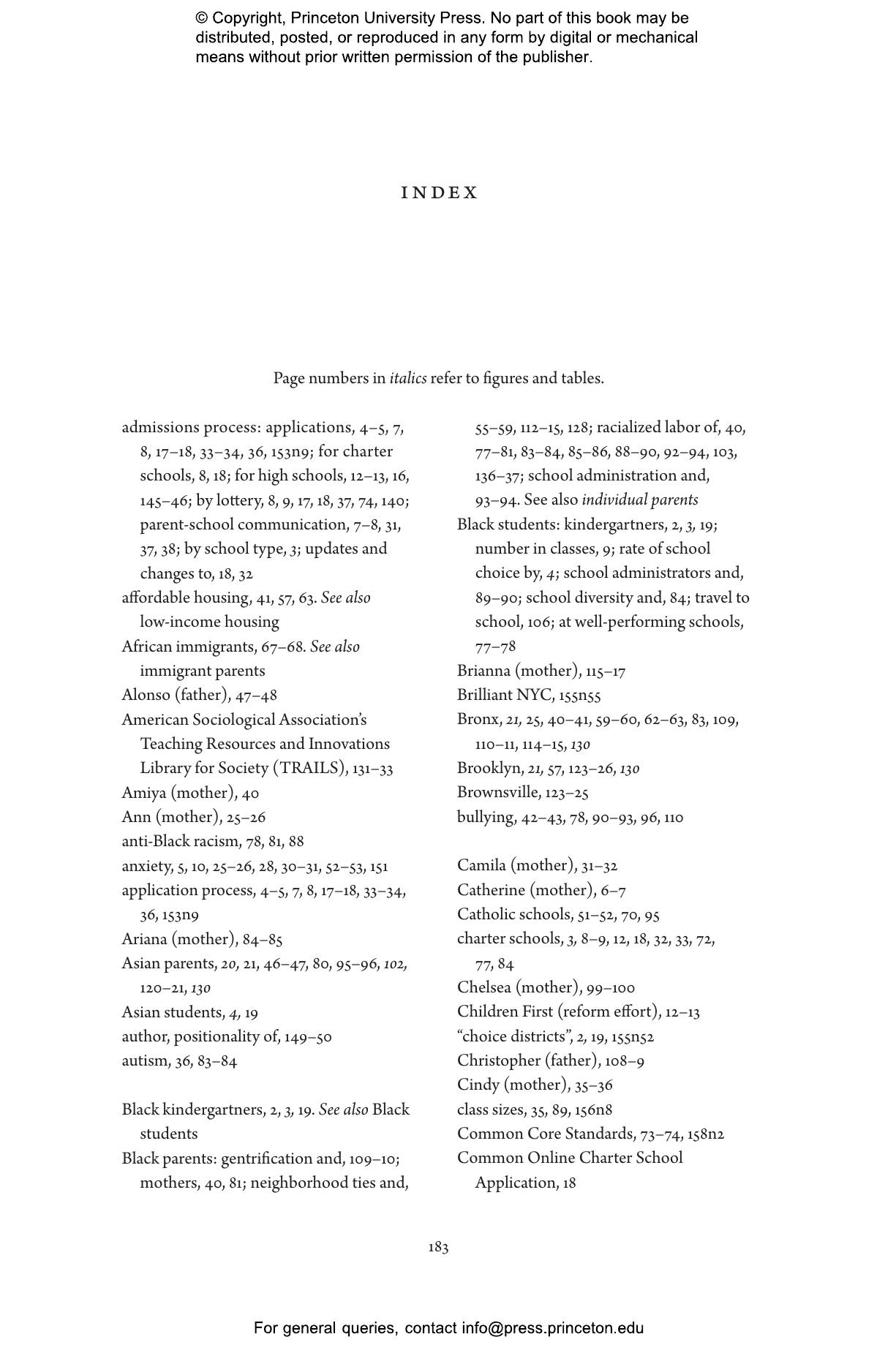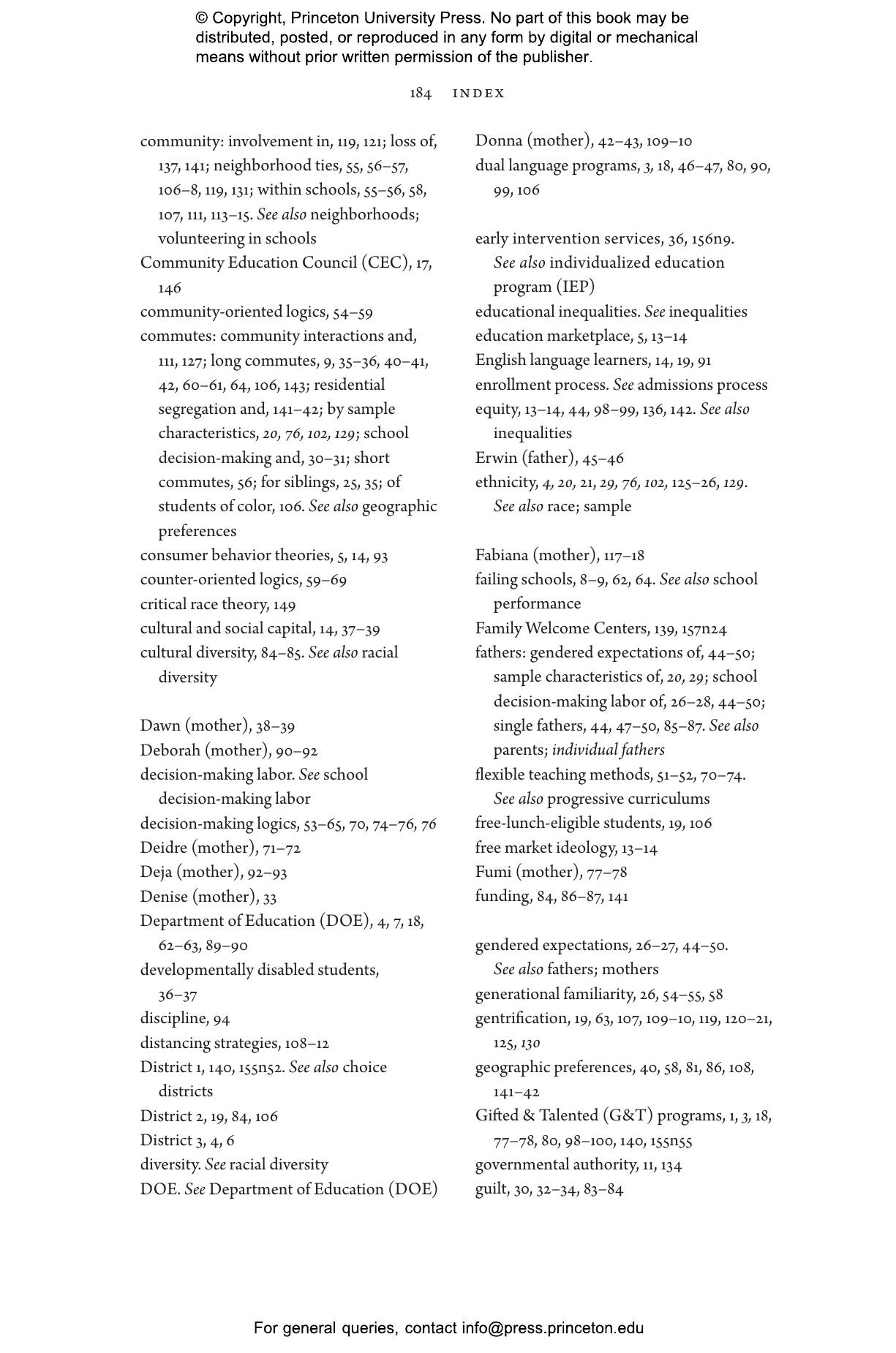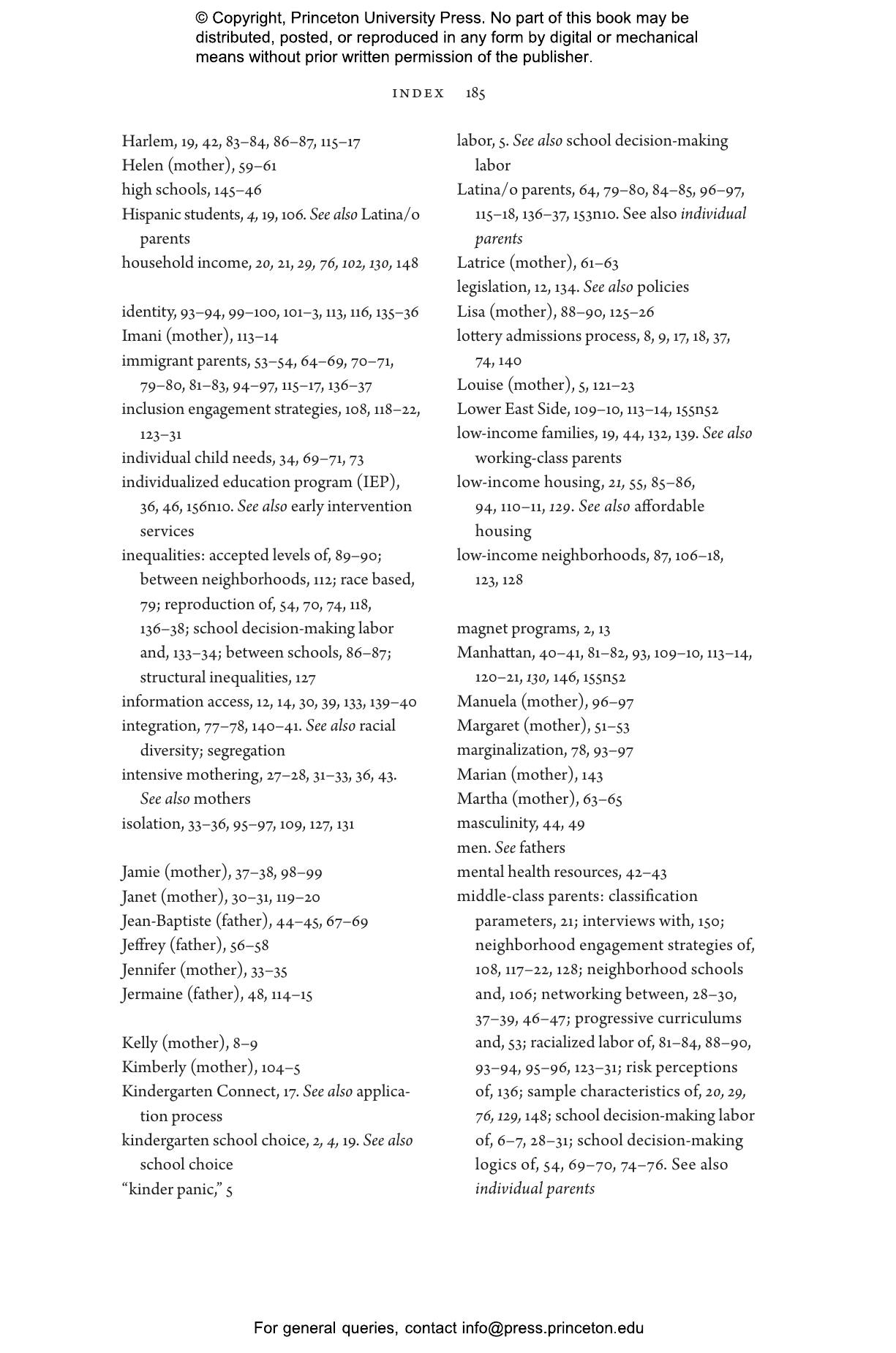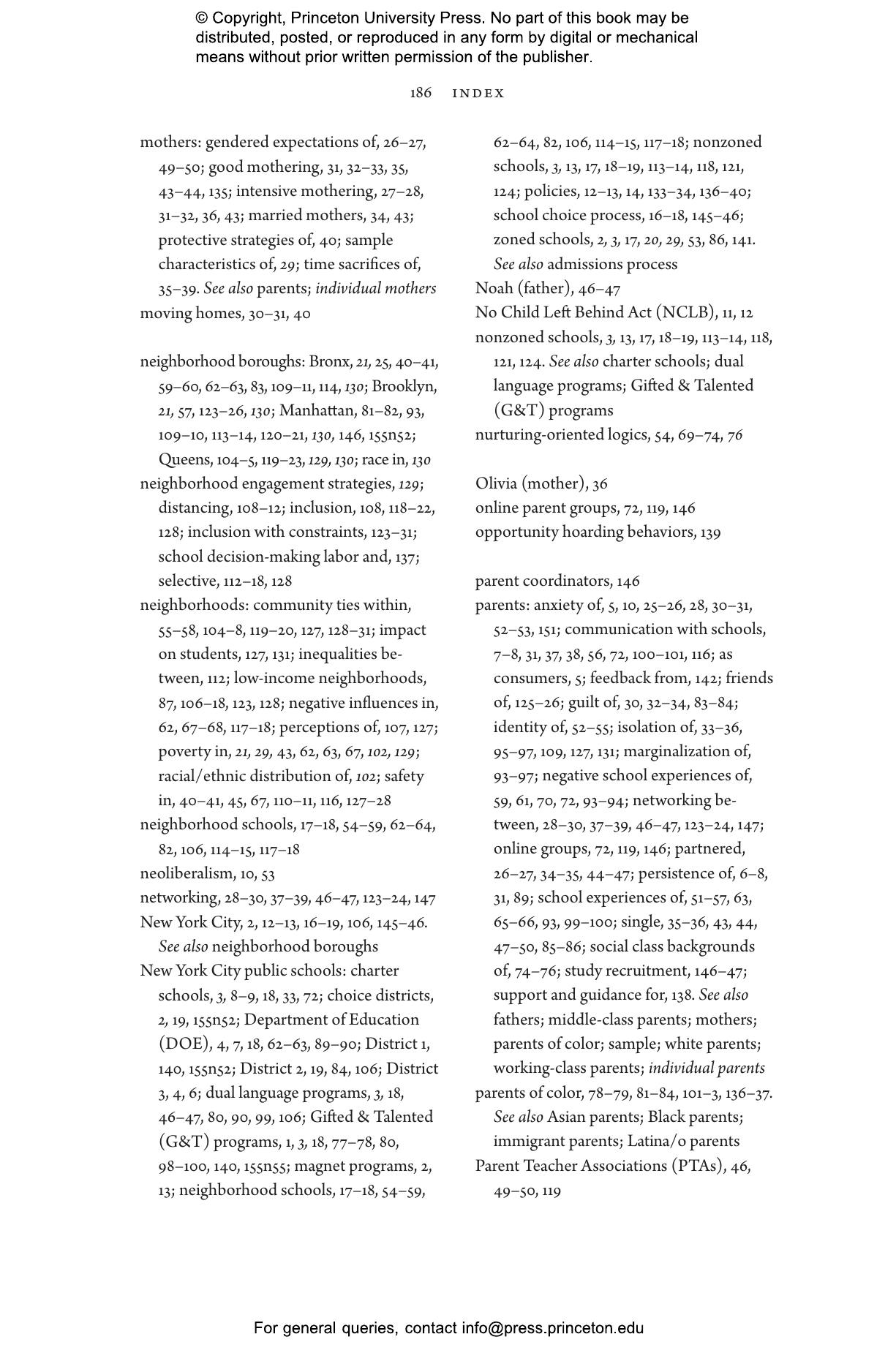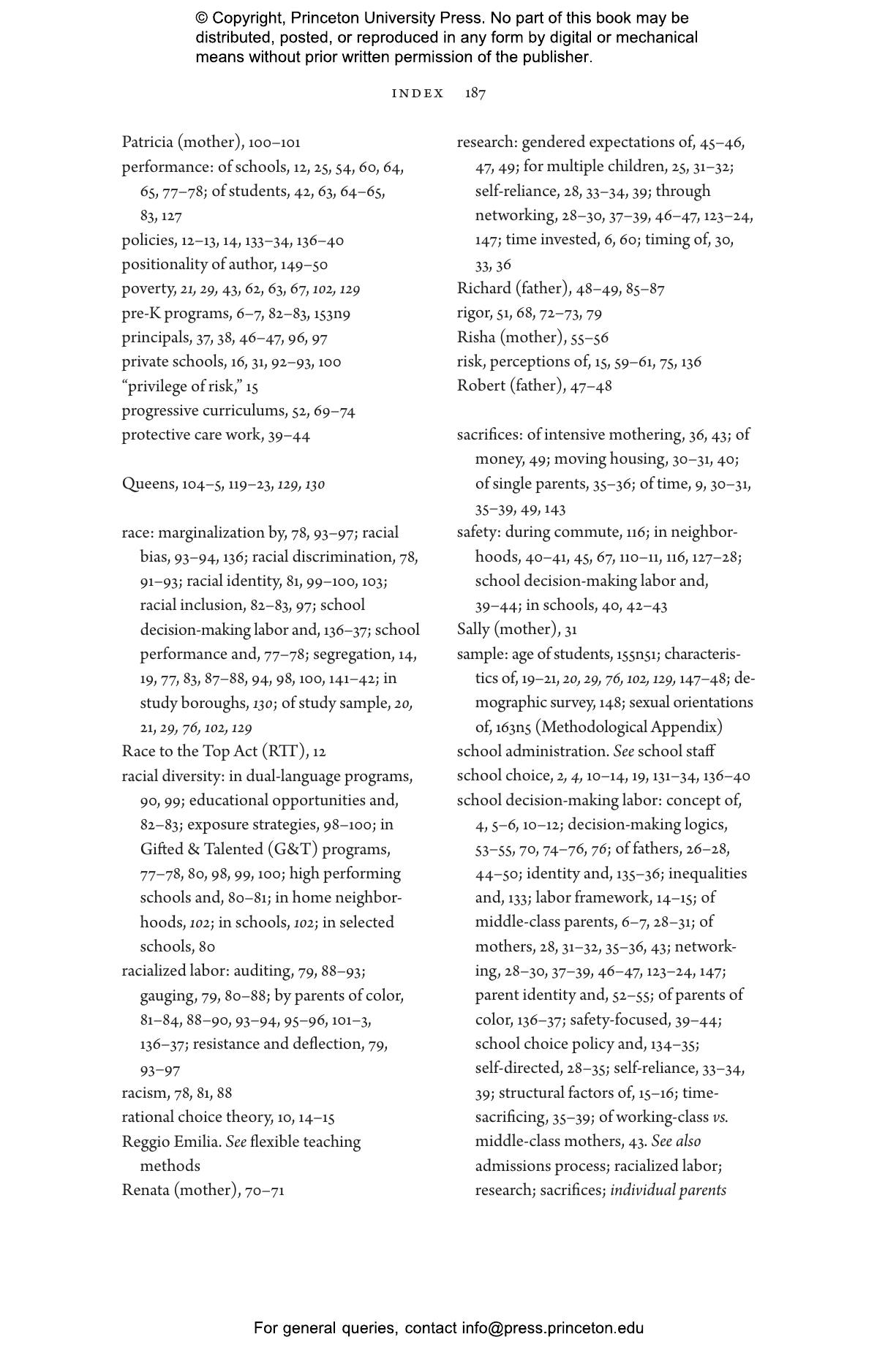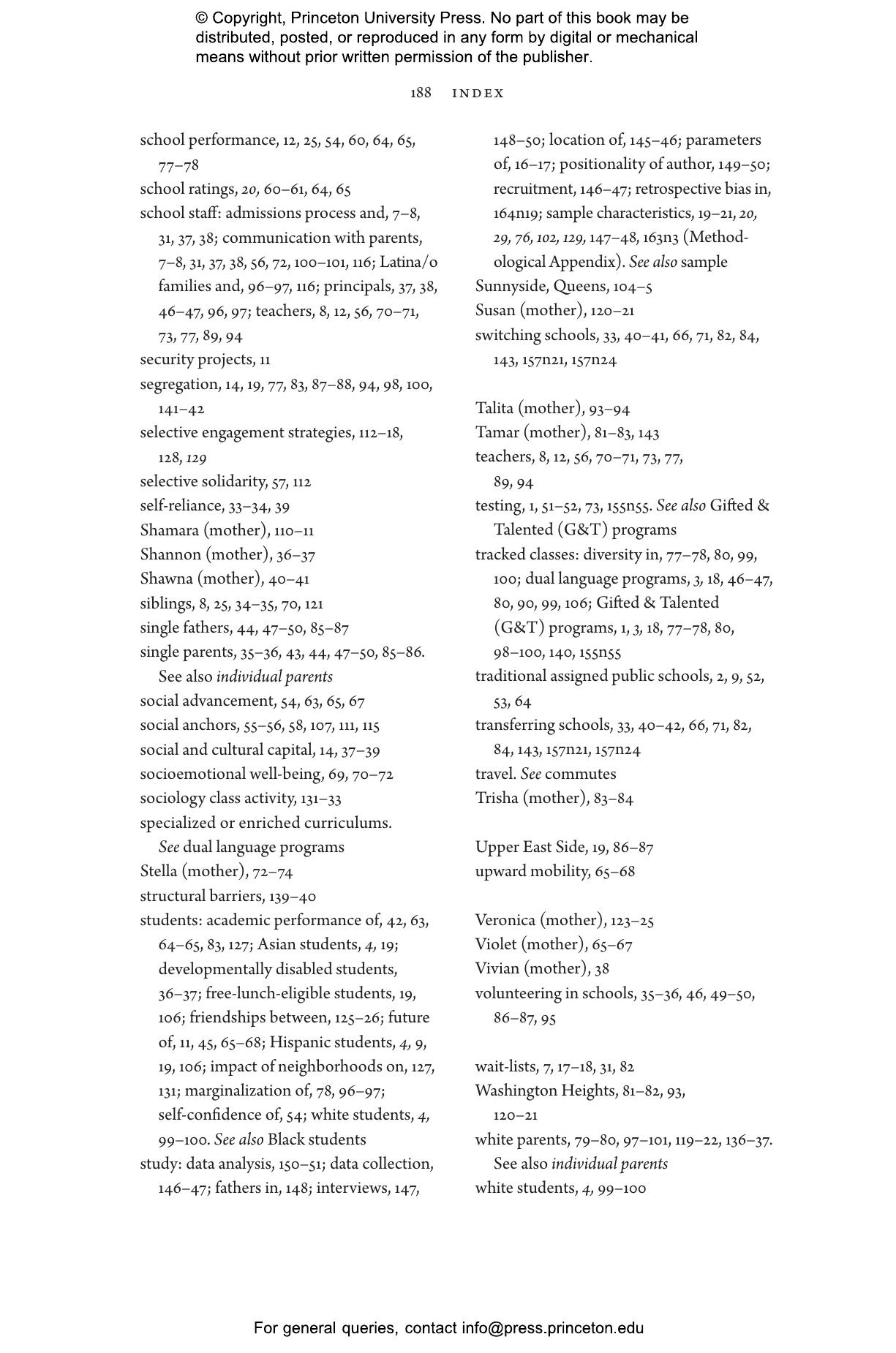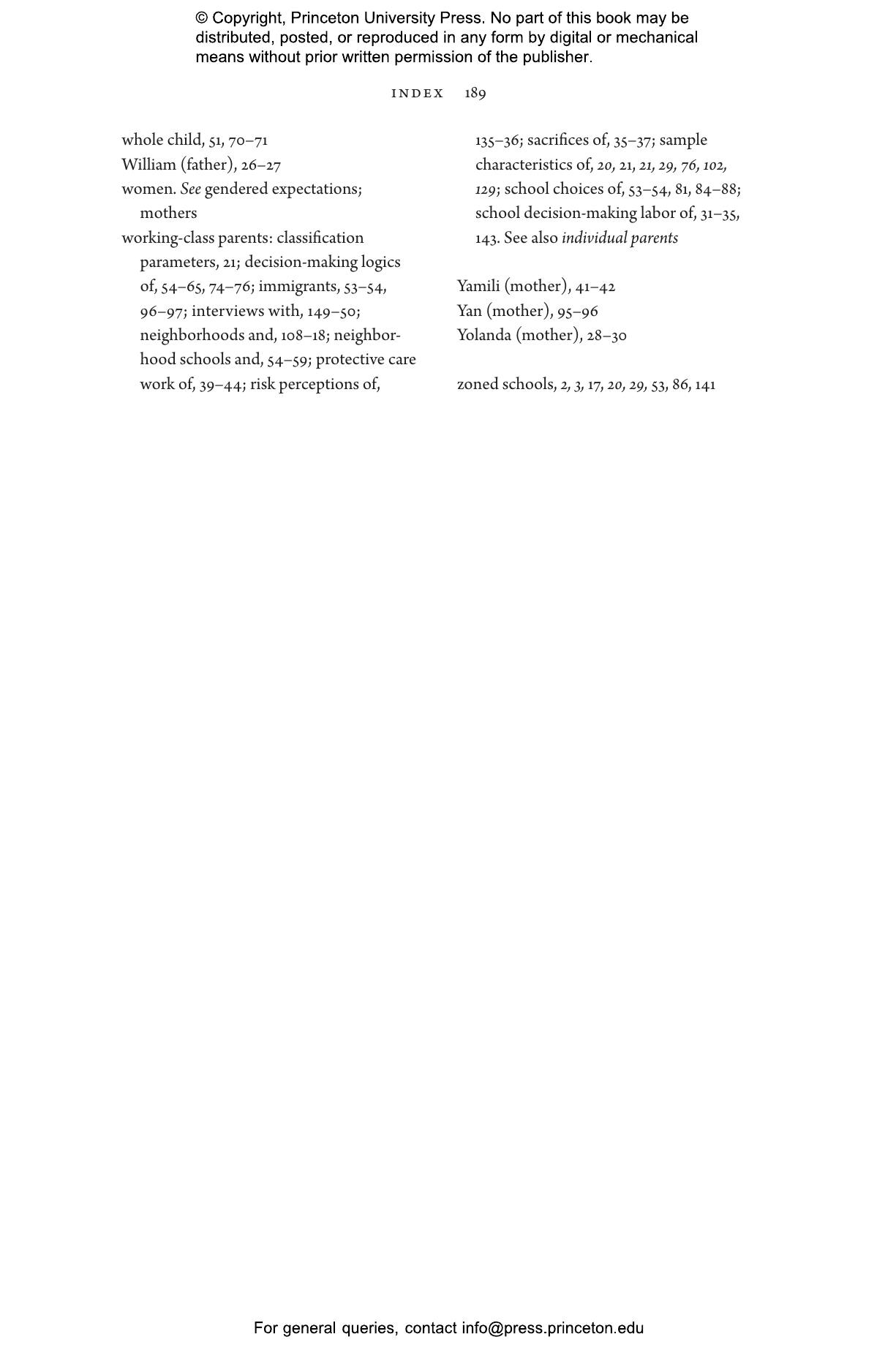School choice policies have proliferated in recent years, with parents forced to navigate complex admission processes. In New York City, families have more options than ever before, but the search for the right school has proven to be time-consuming, painstaking, and anxiety-provoking work. In Kindergarten Panic, Bailey Brown examines the experiences of parents as they search for elementary schools, finding that socioeconomic inequalities and persistent disparities in resources, information access, and decision-making power contribute to broad variation in how families develop and manage their school-choice labor strategies. The labor that parents invest in searching for schools is unevenly distributed, and shaped by gender, socioeconomic background, and neighborhood contexts.
Drawing on interviews with more than a hundred parents of elementary school students in New York City, Brown shows how inequality manifests itself as parents and students deal with the uncertainties of the school choice process. By conceptualizing school decision making as labor, she makes visible the often-unseen work that goes into making educational decisions for children. Brown argues that recognizing school choice as labor both deepens our theoretical understanding of the challenges families confront and identifies vast disparities in parents’ labor across socioeconomic and gender divisions. If parents continue to be charged with searching for schools, we must take seriously how school choice policies reproduce the kind of inequality they are intended to reduce—and we must invest in providing equitable access to high-quality public schooling for all families.
Bailey A. Brown is assistant professor of sociology at Spelman College.
34140
"[Kindergarten Panic] argues the school search is a burden that is being thrust upon parents—mostly mothers—whether they like it or not. While more options help parents find the best school, not everyone knows how to navigate the process. . . . Brown’s findings helped me make sense of my own search, which began more than a year before my son started kindergarten."—Sara Randazzo, Wall Street JournalÂ
“This book’s focus on the labor demanded of parents in the context of expanding school choice offers a necessary contribution to the education literature. Brown unpacks in significant detail exactly how this process operates, and effectively highlights the ways in which the demands of this labor perpetuate and amplify inequality.”—Anna Rhodes, Rice University
“Based on rich interview data, Bailey Brown’s book brings a fresh perspective to the extensive labor parents, particularly mothers, engage in while navigating school choice. Kindergarten Panic offers important contributions to help us better understand how school choice policies uphold rather than disrupt longstanding gender, race, and class inequalities, making it an accessible and impactful read.”—Mahala Dyer Stewart, Hamilton College
“Kindergarten Panic powerfully helps us see the nexus of labor and school choice in new ways, both naming school decision making labor but also articulating the ways race, class, and gender shape its differential burdens. Brown pushes us to work toward equitable high quality schooling for all.”—R. L’Heureux Lewis-McCoy, author of Inequality in the Promised Land
“Brown pulls back the curtain on elementary school choice, revealing how a system touted as freedom often feels burdensome, time-consuming, and stressful for the very families it claims to empower. Through the intimate stories of those navigating it, Brown urges us to look past policy promises and into the real lives shaped, and strained, by them.”—Jennifer L. Jennings, 91ÌÒÉ« University
“Kindergarten Panic centers the experiences of parents and caregivers in a highly competitive and unequal school choice process, illuminating the extensive time and labor involved in families’ efforts to ensure a high-quality education for their children. This book is a must-read for families, educators, and policymakers who seek to create and sustain more equitable and just schools and communities.”—Linn Posey-Maddox, author of When Middle-Class Parents Choose Urban Schools
This publication has been produced to meet accepted Accessibility standards and contains various accessibility features including concise image descriptions, a table of contents, a page list to navigate to pages corresponding to the print source version, and elements such as headings for structured navigation. Appearance of the text and page layout can be modified according to the capabilities of the reading system.
Accessibility Features
-
WCAG v2.2
-
WCAG level AA
-
Table of contents navigation
-
Single logical reading order
-
Short alternative textual descriptions
-
Print-equivalent page numbering
-
Landmark navigation
-
Index navigation
-
Epub Accessibility Specification 1.1
-
ARIA roles provided
-
All non-decorative content supports reading without sight
-
No known hazards or warnings


